Photo: John Parra/Getty Images for The Latin Recording Academy®
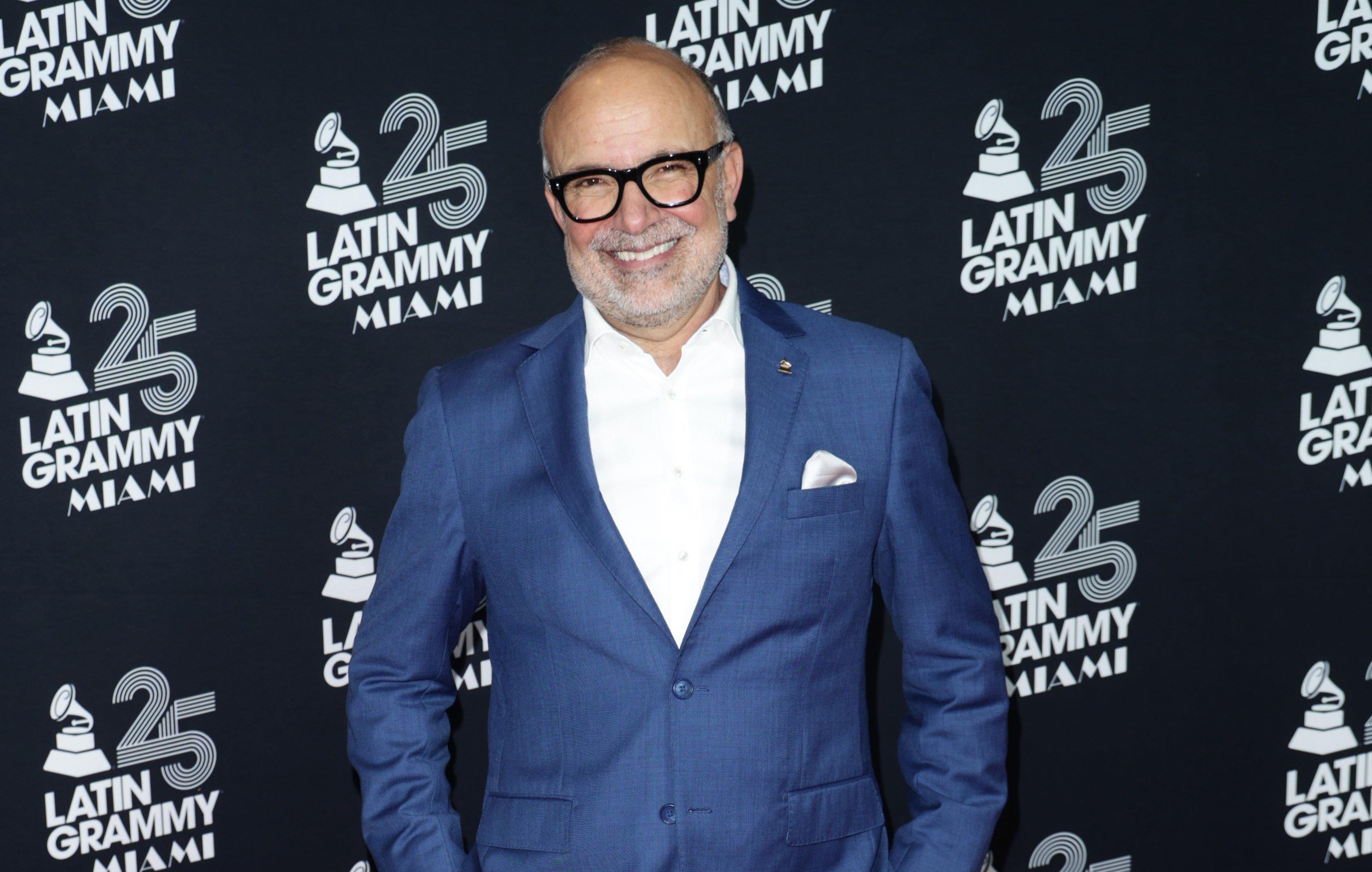
interview
Latin Recording Academy CEO Manuel Abud Discusses 25 Years Of The Latin GRAMMYs, The Return To The U.S. & The Evolution Of Música Mexicana
As The Latin Recording Academy celebrates 25 years of the Latin GRAMMY Awards, its CEO Manuel Abud reflects on the evolution of Latin music and the massive role that the Latin GRAMMYs have played in expanding the genre and industry.
The 2024 Latin GRAMMYs celebrate the 25th anniversary of the Latin GRAMMY Awards — and 25 years of honoring excellence in Latin music. After a successful edition in Seville, Spain, last year, which marked the first-ever international show in Latin GRAMMY history, this year's ceremony returns to the United States, taking place on Thursday, Nov. 14, in Miami.
Much has changed for both the Latin GRAMMY Awards and the Latin music industry since the inaugural awards show took place at the turn of the millennium. Two and a half decades later, Latin music has broken boundaries and experienced an unparalleled global explosion. According to a midyear report by Luminate, a data and insights company focusing on the entertainment industry, Latin music was the fastest-growing genre in the United States in the first half of 2024. The report notes that the Regional Mexican genre, now the largest Latin subgenre in the U.S., is one of the primary drivers behind this trend.
Reflecting a commitment to evolve with the ever-changing musical landscape, the Latin Recording Academy will introduce two new Latin GRAMMY categories this year: Best Latin Electronic Music Performance, housed within the new Electronic Music field, and Best Contemporary Mexican Music Album.
Despite the genres' breakout success, incorporating these categories into the Latin GRAMMY Awards Process is not a response to a fleeting trend. "It's a thorough process to ensure, as much as possible, that the categories aren't the result of a momentary fad, but truly represent a movement that, while not permanent, is very solid," Latin Recording Academy CEO Manuel Abud told GRAMMY.com in an interview on the day before the 2024 Latin GRAMMY nominations were announced.
As the global authority on Latin music, The Latin Recording Academy and the Latin GRAMMYs have been at the forefront of Latin music's evolution from a niche genre to a global phenomenon. Now celebrating 25 years of Latin music history while building its innovative future, The Latin Recording Academy continues to honor and elevate the creators who have globalized Latin music.
"It should never be about us; it's about our members and the music," Abud reflected. "It's wonderful that after 25 years, our music is experiencing such amazing growth and that we have the privilege of working with our artists and creators, celebrating their successes. Their successes are our successes."
In this exclusive interview with GRAMMY.com, Abud discussed the 25-year history of the Latin GRAMMY Awards, the selection of Carlos Vives as the 2024 Latin Recording Academy Person Of The Year, and the integral role that the Best New Artist category plays in fulfilling the Latin Record Academy's mission of nurturing and elevating the future of Latin music creators.
This interview has been edited for brevity and clarity.
From the first Latin GRAMMY Awards in 2000 to now, Latin music has evolved and reached unimaginable heights. What have you discovered looking back at the award show's 25-year history?
There's been a clear evolution from a time when we were seen as niche music, where the recognized artists were those who made the famous crossover. Today, without presumption, I believe we're a global pop culture phenomenon in our language. Interestingly, what we're seeing now is an interest in reverse crossover. You have mainstream artists wanting to collaborate with Latin artists.
And in Spanish!
Exactly. I'd like to think we've been a fundamental part of that evolution. It's been an immense privilege to be part of this history while writing our own, where we've faced many challenges — from the shift from English to Spanish to the show cancelation due to 9/11 — then a growth process and then the pandemic, which also required reinvention. All these "obstacles" have strengthened us significantly, and now we're prepared for the next stage.
Speaking of Latin music globalization, last year's edition took place in Seville, Spain, the first time the Latin GRAMMYs left the United States. What conclusions can you draw from that ceremony?
First, an important reflection is that taking the Latin GRAMMYs abroad for the first time was part of a deliberate and clear globalization strategy. Our membership is already global with more than 5,000 members from 49 countries. We have been building bridges with creators and Latin music lovers alike and the next step in The Latin Academy’s evolution was to take Latin GRAMMY Week and the Latin GRAMMY Awards on the road to continue expanding this relationship.
Why bring the 25th anniversary of the Latin GRAMMYs back to the United States and Miami specifically?
Miami is our home; it's where The Latin Academy is headquartered. Also, Miami has become a confluence center for all Spanish- and Portuguese-speaking countries. After Sevilla, it was natural to move to Miami. There was also a clear intention and a very positive disposition from the Miami authorities to bring us here.
How will Miami's personality be reflected in this year's ceremony?
Last year when we were in Sevilla, the city became another character in the story told during Latin GRAMMY Week. The same will happen in Miami this year; the city will be an additional character to the story. You'll see it in the visuals and vibe of the ceremony.
Last year, we announced the nominations at the Real Alcázar of Sevilla, where we also held the Nominees Reception. This year, nominees were announced from the Frost Art Museum in Miami, where the 2024 Nominees Reception will take place. The Frost Art Museum boasts a spectacular view of the bay with sharks and turtles on one side, which is part of Miami's personality.
This year, The Latin Recording Academy announced the inclusion of two new Latin GRAMMY categories: Best Contemporary Mexican Music Album and Best Latin Electronic Music Performance. What was the process that led to these two new categories?
The process of adding a category is deliberate. Why? Adding a category is an additional commitment, both in resources and effort, but above all, in the commitment to support it.
It's quite an exhaustive process to ensure, as much as possible, that the categories are not the result of a momentary trend.
The case of contemporary Mexican music has been developing for a few years. Creators are clearly evolving their musical proposal by incorporating elements from other genres, which shows its current evolution.
[Regarding the Best Latin Electronic Music Performance], the process started earlier because there's a clear intersection with general market. Sampling is used, and a whole series of elements is used that make it difficult to classify. However, it was subjected to the same rigor and was already overdue.
Related: Meet The Gen Z Women Claiming Space In The Regional Mexican Music Movement
This year, categories like Best Ranchero/Mariachi Album, Best Banda Album, Best Tejano Album, and Best Flamenco Album have between three and four nominees each. Is this a cause of concern for the Latin Recording Academy?
Starting this year, we applied a rule similar to the Recording Academy: When a category doesn't have the minimum number of entries, the number of nominees is reduced. This is very important to maintain the award's relevance. We hope to receive more entries in the future. We don't want categories to disappear.
Carlos Vives was named the 2024 Latin Recording Academy Person of the Year. I know you have a peculiar way of delivering the news to the honorees. How was that encounter?
First, let me tell you that our Board voted him unanimously and happily, because we believe that Carlos represents The Latin Recording Academy's values. He's an artist who has been with us from the beginning and whose musical proposal has also evolved. He's a great reflection of The Latin Academy's values: a philanthropist, a music historian, and a great collaborator among his peers.
We gave him the news in person at breakfast with his wife and his manager as accomplices. I told him, "Look, Carlos, I want to thank you for everything you've done for The Academy over the years. What you did in Sevilla was spectacular; it was very nice." And he asked me where the ceremony would take place this year. I told him, "In Miami, you're going to have to have an important participation. We're going to put you to work." Carlos tells me, "Manuel, for The Academy, whatever you want." And I say, "How about Person of the Year?" Yes. The Board of the Latin Recording Academy voted you as this year’s Person of the Year.
About the 2024 Special Awards, how did you select this year's honorees?
These are very special awards voted on by our Board. The selection is deliberate and diverse because we look for representation of countries and genres. This is where you see Latin music's richness and our legends.
The Special Awards ceremony represents the diversity of Latin music across genres, geography, gender and generations, honors, and we are very happy to celebrate these creators' lifetime achievements.
The Best New Artist category is one of your favorites. Why?
It is, as I feel, we have the greatest capacity to impact the new generation of creators.
This category gives life to our mission. It is highly competitive; we had over 350 entries for this year's Best New Artist category. And this year, we have 10 nominees who reflect vast musical genres and geographic diversity.
This year, The Latin Recording Academy is also celebrating the 25th anniversary of the Latin GRAMMYs with exhibitions in New York, Los Angeles and Miami. Why bring The Latin Recording Academy and its history to museums?
We had to tackle the 25th anniversary celebration from all angles. One thing we sometimes don't pay as much attention to is the artifacts, which remain physically in addition to the music. The three exhibitions have different personalities.
The exhibit at the Paley Museum in New York City is focused on media. There, the Telecast content is the driver. It also celebrates Latin GRAMMY and GRAMMY winning [artists like] Celia Cruz and Rubén Blades, who, in addition to being very important to The Latin Recording Academy, have solid roots and presence in New York. So, you'll find artifacts ranging from a pair of Rubén's maracas from his personal collection, Celia's pink dress worn in performances throughout her prolific career, along with Shakira's harmonica and guitar.
Los Angeles differs in the curation of selected pieces. This exhibition is more artifact-driven because it is at the GRAMMY Museum, where we have a permanent exhibition.
The exhibition at the Gary Nader Art Centre in Miami is completely different because the Official Art commissioned for each edition of the Latin GRAMMY Awards will be the driver. For us, art is a form where visual and graphic expressions converge with music. When you see the [Latin GRAMMYs'] 24 posters, [you realize] how all artistic expression is a faithful reflection of what the artist is experiencing at that moment. You will see the artwork from our first show, created by Romero Britto, along with some unique pieces by artists from all over Latin America. You see the evolution of artistic expression.
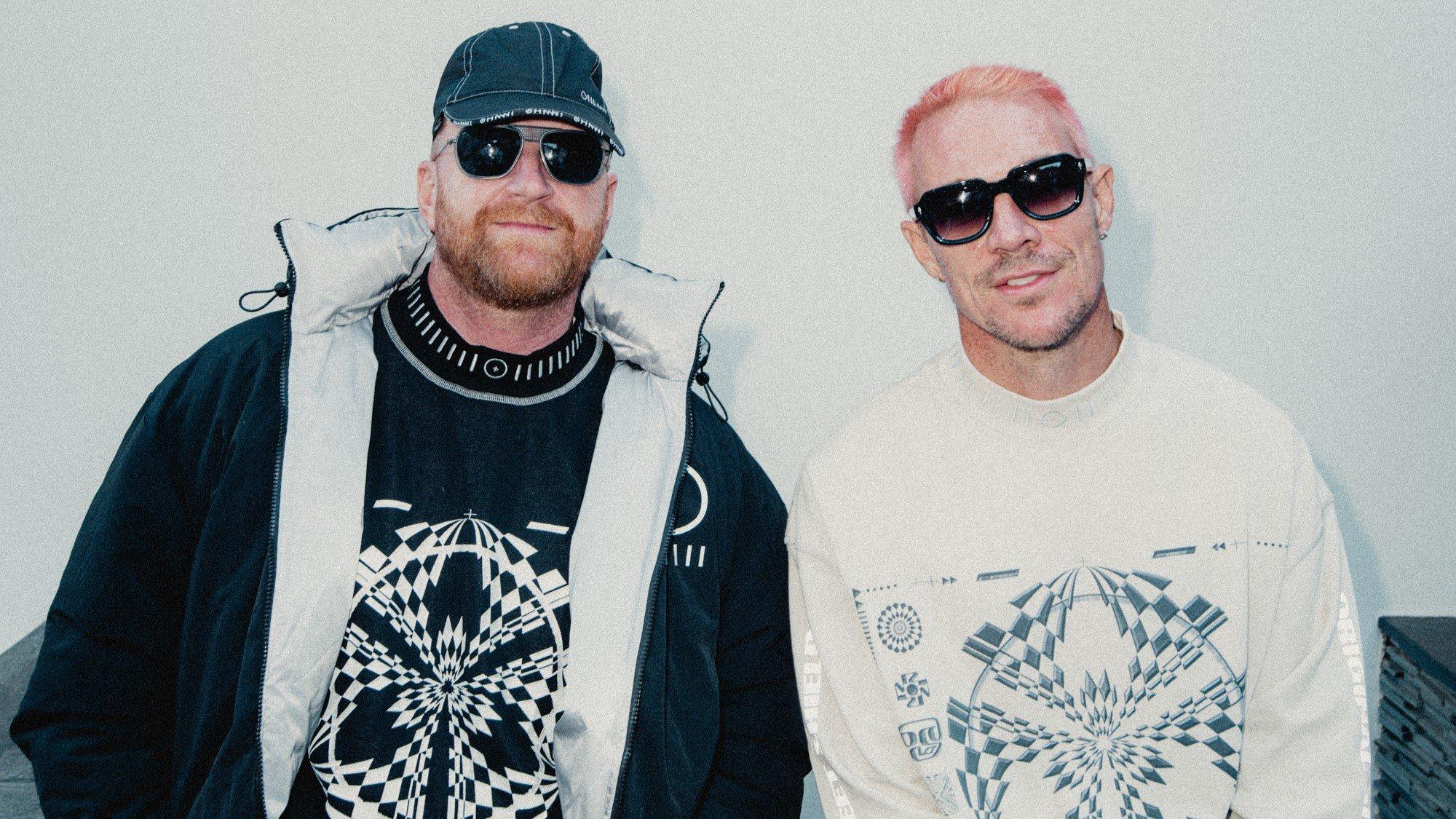
Photo: donslens
feature
How Major Lazer's 'Guns Don't Kill People…Lazers Do' Brought Dancehall To The Global Dance Floor
"We thought, if we can introduce what was going on in Jamaica to a more American environment, that would be amazing," Switch says of Major Lazer's seminal debut album.
June 12, 2009: a Friday night at popular Kingston nightclub Quad. Minutes after 2 a.m., the evening’s special guests DJs/producers Wesley "Diplo" Pentz and David "Switch" Taylor will take over the club’s DJ booth and premiere their new collaborative project: Major Lazer.
In addition to the club’s usual Friday night clientele, in attendance are dancehall scene makers and music industry personalities who've come to hear Diplo and Switch’s unique selections and the premiere of the sonic-splicing tracks from their first album under the Major Lazer guise: Guns Don’t Kill People…Lazers Do.
Recorded during a three-week period at the Marley family’s Tuff Gong studios in Kingston, Guns was released on June 16, 2009. The album juggles various sounds into a groundbreaking, genre-blurring collage of samples, audio effects and disparate influences with a significant dose of dancehall reggae’s syncopation, and a primarily Jamaican cast of vocalists.
On the album’s cover art by Ferry Gouw, (reminiscent of the vibrant Jamaican dancehall and dub album cover illustrations of the 1980s) Major Lazer is depicted as a brawny cartoon superhero, "a Jamaican commando who fights the spoils of vampires, zombies, pimps, mummies, and other unsavory forces of evil," according to the album’s press release. Aurally, however, Major Lazer’s ultimate mission was to expand the parameters of electronic dance music and present another avenue of exposure for dancehall reggae and other Caribbean rhythms.
"The intention was to translate how inspired we were by the scene in Jamaica because we drew from a lot of the sounds there," Switch tells GRAMMY.com via Zoom.
The innovative fusion of various electronic music pulses with the island’s reggae and dancehall riddims, as well as the incorporation of dub, took Guns Don’t Kill People…Lazers Do to No. 7 on Billboard’s Top Electronic Albums and No. 5 on the U.S. Top Heatseekers charts. Diplo and Switch further popularized Major Lazer with frenetic performances at raves and dance music festivals around the world.
Guns Don’t Kill People…Lazers Do turned 15 this year. In celebration, Diplo and Switch recently released a deluxe digital reissue of the album, which includes three additional tracks: "Pon De Streets," an alternate version of the original’s album’s hit single "Pon De Floor"; "Nobody Move," with new vocals by Vybz Kartel adapted to a beat created during the album’s initial recording session (found on a hard drive that was locked away in a vault for years); and "Where’s The Daddy," featuring M.I.A., who Diplo once called "the third Daddy of Major Lazer."
M.I.A. originally recorded her "Where’s The Daddy" vocals when she was pregnant (she gave birth to her son in February 2009); as an acknowledgement of that time, she cradles a baby bump throughout the song’s 2024 video.
Diplo, an American, and the British Switch were both immersed in house and other forms of electronic music prior to creating Major Lazer. They merged their cutting-edge, genre-defying approaches on their co-production of M.I.A's chart-topping "Paper Planes"; the song was nominated for Record Of The Year at the 51st GRAMMY Awards.
Diplo and Switch made several beats for M.I.A. that were never used, and decided to record them in Jamaica where, as Diplo noted on X, "the artists were extremely talented, the Jamaican music scene at the time was cutting edge and it was cheap to work there." Those surplus beats coupled with the pair’s ongoing fascination with Jamaica’s dancehall culture led to the creation of Major Lazer.
"It was incredible going to the parties there, whether on the streets or in the clubs, and seeing the interaction between the crowds, the selectors and the deejays," Switch explains. "We were cutting our teeth as DJs and producers and wanted to do something different; we thought, if we can introduce what was going on in Jamaica to a more American environment, that would be amazing, so that’s what we set out to do."
Despite their respective accomplishments as DJs/producers, Diplo and Switch were largely unknown to the Quad’s Friday night patrons at the time of Major Lazer’s debut. They worked hard to win the crowd over with a set that alternated between pounding techno beats, customized dancehall selections, an array of audio effects and a computerized voice that sporadically intoned "Major Lazer." Despite their best efforts, the clubgoers remained indifferent until an appearance by a comical African character calling himself Prince Zimboo (featured on the album’s track "Baby," which incorporates an auto-tuned cry of an infant that’s sampled on elsewhere on the record) thawed the audience’s initially icy response.
Via email, Diplo recalls Major Lazer’s Jamaica debut with brutal candor: "We sucked…basically got booed but Prince Zimboo told a bunch of good jokes and people were happy to have some funny-ass crackers in the club."
Switch, who reflects on that night with greater fondness, remembers feeling "confident that we could play music that no one else had, but could we step into that scene that had inspired us?"
While Switch recalls being nervous about not having a vocalist toasting live on the riddims or hyping up the crowd, he revealed, "more preparation went into that set than either of us has pulled off together or individually. Diplo and I made our own dubs. We took acapella dancehall vocals and put them on our beats, put new vocals on already established dancehall beats and juggled a lot of sounds."
Guns Don’t Kill People…Lazers Do, released four days after their Quad gig, kicks off with "Hold The Line," a crackling spaghetti Western meets surf rock soundscape. An immediate indication of Major Lazer’s preparation and myriad influences, the tune is punctuated by the mantra-like, hi-pitched vocals of barrier-breaking singer Santigold, sharp patois verses from Jamaica’s Mr. Lexx, neighing horses and ringing phones, an eclectic combination designed to make the listener "vibrate like a Nokia."
What follows is the intergalactic throb of "When You Hear the Bassline" (featuring Jamaica’s Miss Thing), the near-psychedelic, cavernous dub resonance of "Lazer Theme" (Jamaica’s Future Trouble), and appealing pop-soca flavored dancehall on "Keep It Goin’ Louder." Artists from the diaspora abound: Queens’ Nina Sky and Brooklyn-based Jamaican Ricky Blaze appear on "Keep It, Goin’ Louder" while Guyana born, Brooklyn raised singer Jahdan Blakkamoore’s exquisite vocals swirl amidst the delay and reverb on the dub-drenched Rasta empowerment anthem "Cash Flow."
"We just wanted to add to the lexicon of dancehall," Diplo writes of the album. "We never tried to elevate or move the sound forward…we just wanted to make something weird."
Out of the weirdness came a significant hit — and the album’s most-streamed track — "Pon De Floor." Created with additional production by Dutch DJ Afrojack, "Pon De Floor" is dominated by a sputtering synth over a marching band snare drum pattern; dancehall’s "Worl’ Boss," Kartel rhymes "baby, get in line, let me see your bestest wine."
"Jamaican DJ crew Chromatic made 'Pon De Floor' a hit in Kingston and it grew from there to the rest of the world," Diplo notes. The track reached the UK Singles Chart, was featured on the "DJ Hero 2" video game, and then attained widespread attention when sampled on Beyoncé’s 2011 hit "Run the World (Girls)."
The song’s stylized video, (think "Pee-wee’s Playhouse" meets Kingston’s now defunct Passa Passa street dance) was directed by comedian Eric Wareheim. The video stars Skerritt Bwoy, Major Lazer’s former hype man, who introduced many viewers to the hypersexualized dancehall "dance" ritual known as daggering.
"'Pon De Floor' was unlike anything that was going on in Jamaica at the time, but it was inspired by the energy of the clubs there," Switch remarks. "I remember going to Hellshire Beach and the DJ at an event there pulled the record up three or four times. Watching the crowd’s reaction, it was like we were vindicated, the song penetrated the real Jamaica scene, people are ok with us; that was a real thrill."
Yet, some weren’t ok with Major Lazer, two white foreigners spearheading a Black Jamaica-rooted album. Protests of cultural appropriation were cited in some reviews, without considering the credentials of the Caribbean artists involved and the benefits many of them derived from it.
"Major Lazer did wonders for me," Vybz Kartel tells GRAMMY.com. "They helped to push me to an audience that normally wouldn’t know Vybz Kartel; with 'Pon de Floor' they could put a name and a face to the song, which definitely gave me a lot of new fans, so big up Major Lazer, every time."
"It was incorrect to think we were doing anything like cultural appropriation, it was journalistic," adds Switch. "We found something that we thought would be appealing and wanted to champion it, expose it. We ended up with Vybz Kartel being on a Beyoncé record, the two farthest apart worlds colliding, and we’re very grateful that we got to bridge that gap."
As Major Lazer’s popularity escalated, Switch decided to leave in 2011, preferring to remain behind the scenes, producing and developing his songwriting skills. "At that time [Diplo] was very focused on the opposite, he was taking the DJ world by storm and it felt like he was fine doing it on his own, collaborating with the people he went on to collaborate with," acknowledges Switch. "But we never really stopped working on stuff together."
In a recent video, Diplo said he considers Guns Don’t Kill People…Lazer’s Do to be "a little bit of punk, a little bit of dancehall, a little bit of pop songwriting" made "really, really fun." "We had nothing to prove, we just decided to put out something that was crazy. I think the album really hit with people because they loved the roughness of it. It had no rules and I think it was very important to break the stereotypes."
Guns Don’t Kill People…Lazer’s Do reminds music fans that dub — created through the innovations of King Tubby and Lee "Scratch" Perry — established the template for remixes by demonstrating the infinite possibilities for deconstructing a recorded work. It also served as a reminder that dancehall reggae, which utilized digitized instrumentation beginning in the mid-1980s, are not only forms of dance music, but have played significant roles in its evolution. Switch adds that the album brought greater attention to dancehall/reggae at a time when international interest in the music had waned.
"I think the album really opened the door for dancehall, not just in dance music but pop music as well. If you listen to what Benny Blanco does with Ed Sheeran, that’s about as mainstream as it gets."
There’s a subtle Jamaican deejay cadence in Sheeran’s vocals on "Don’t" and a lilting, off-beat reggae guitar strum on "Take It Back," produced, respectively, by Blanco and Rick Rubin, for Sheeran’s 2014 album x (Multiply). Sheeran’s 2017 album ÷ (Divide) includes the dancehall inflected hit "Shape of You," which topped Billboard’s 2017 year-end singles chart).
"I’m not saying that wouldn’t have happened without Major Lazer," Switch continues, "but I feel like we oiled the cogs and pointed out a different kind of rhythm that had greater commercial prospects in the pop world, coming from the dancehall scene in Kingston."
More Dance & Electronic Music News
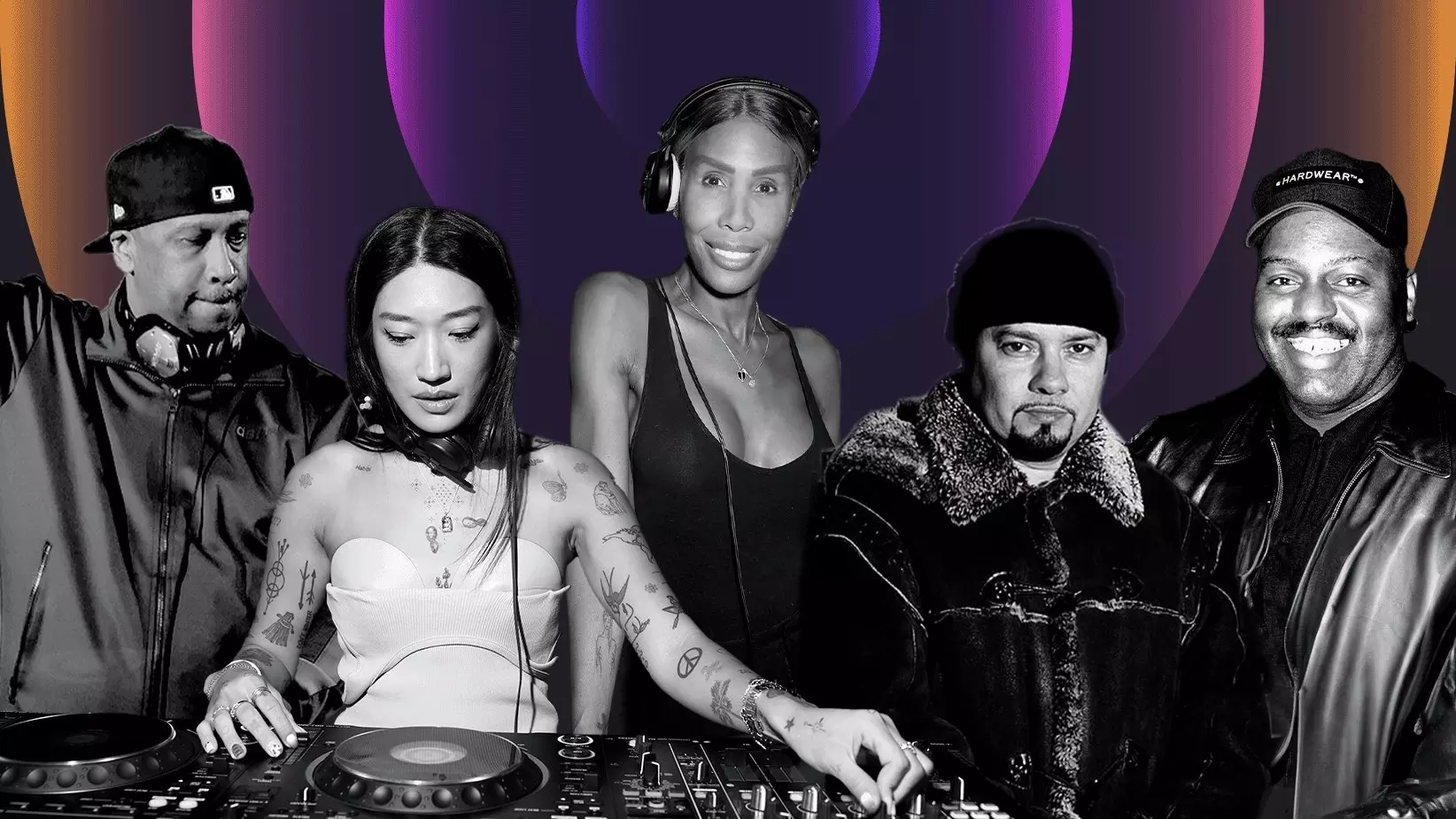
A Timeline Of House Music: Key Moments, Artists & Tracks That Shaped The Foundational Dance Music Genre
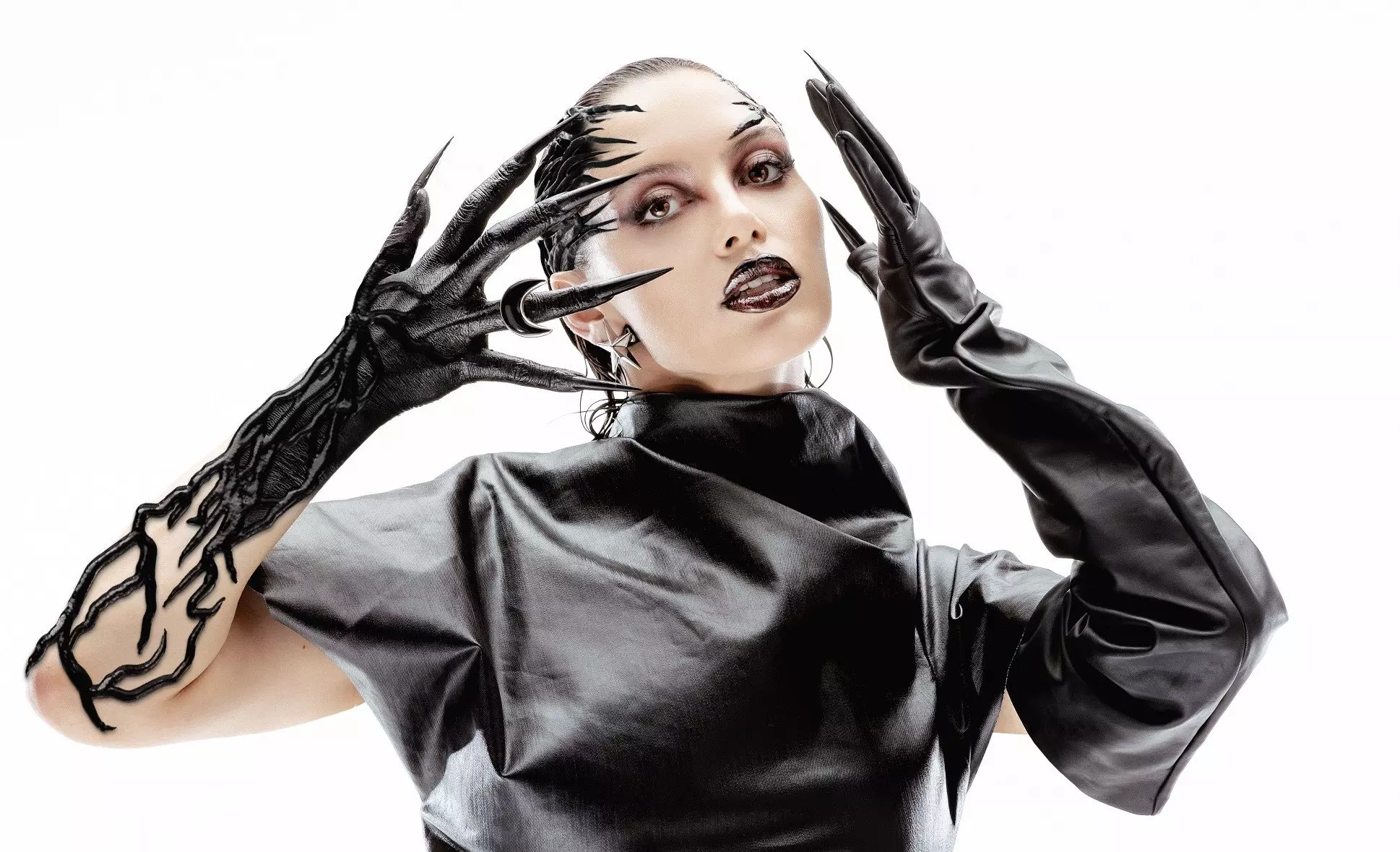
Hard Techno Maven Sara Landry Talks 'Spiritual Driveby,' Creating A Safe Space For Emotion & Leaving It All On The Dance Floor
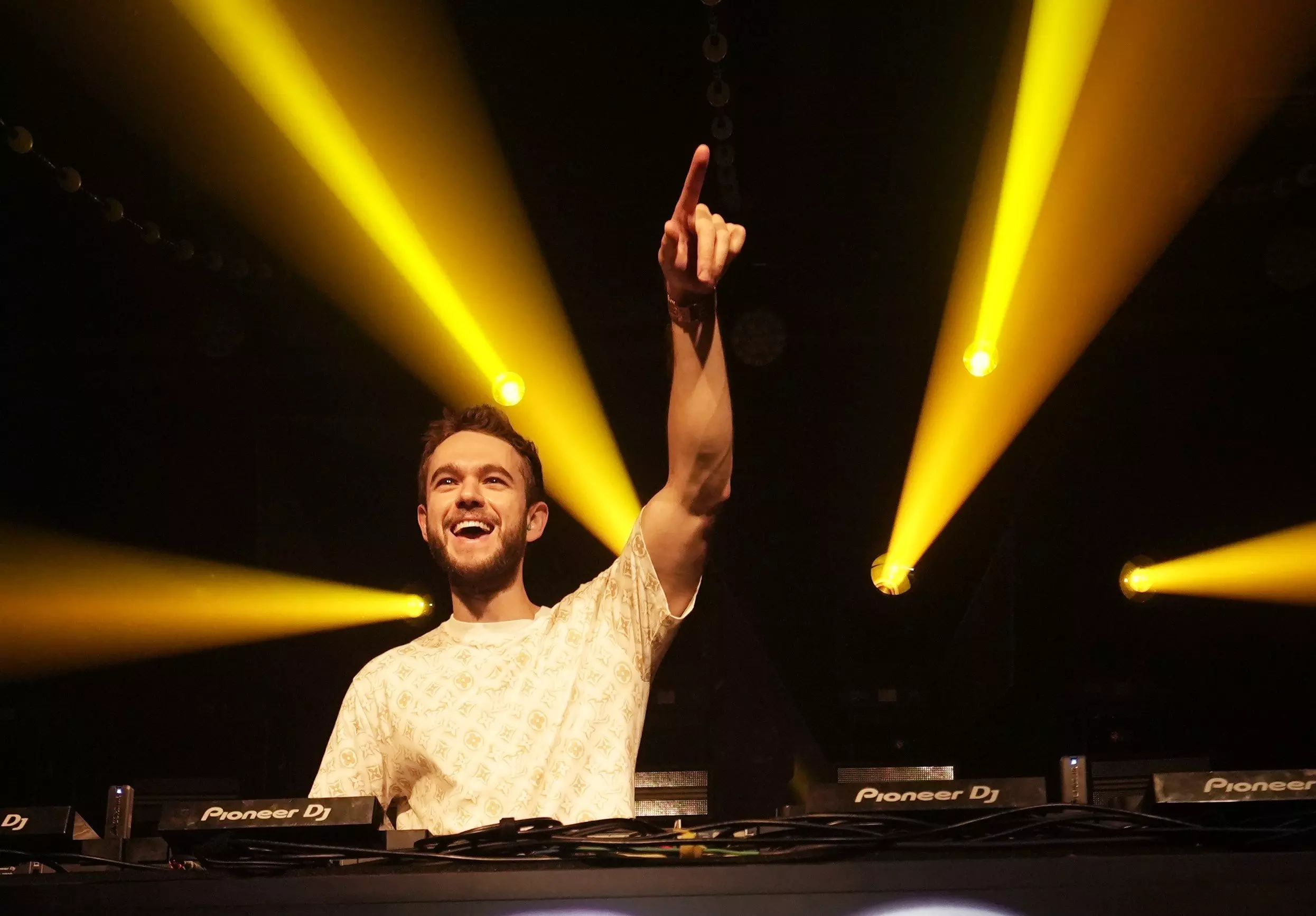
Zedd's Road To 'Telos': How Creating For Himself & Disregarding Commercial Appeal Led To An Evolutionary New Album
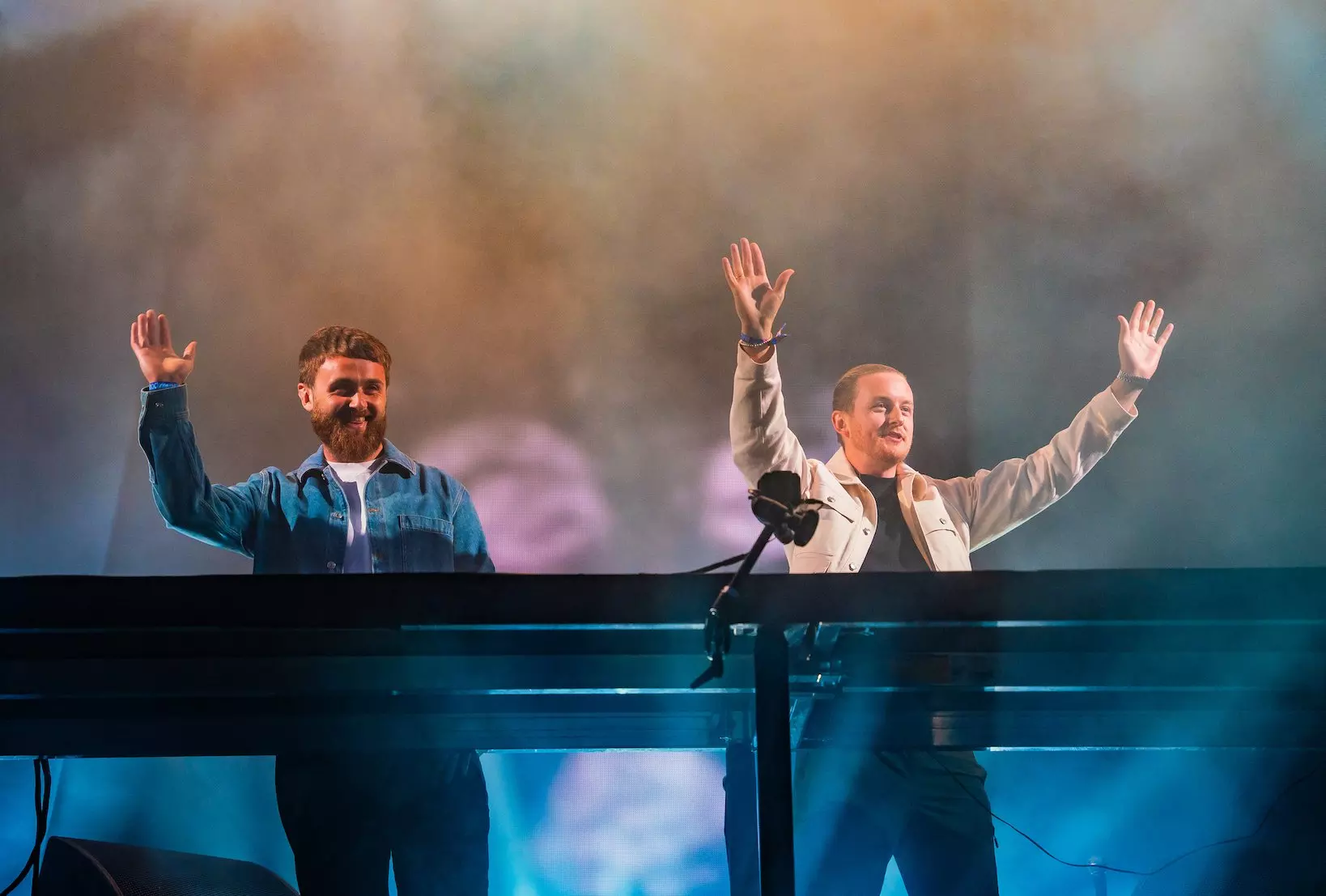
10 Cant-Miss Sets At HARD Summer 2024: Disclosure, Boys Noize, INVT & More
.webp)
Machinedrum's New Album '3FOR82' Taps Into The Spirit Of His Younger Years
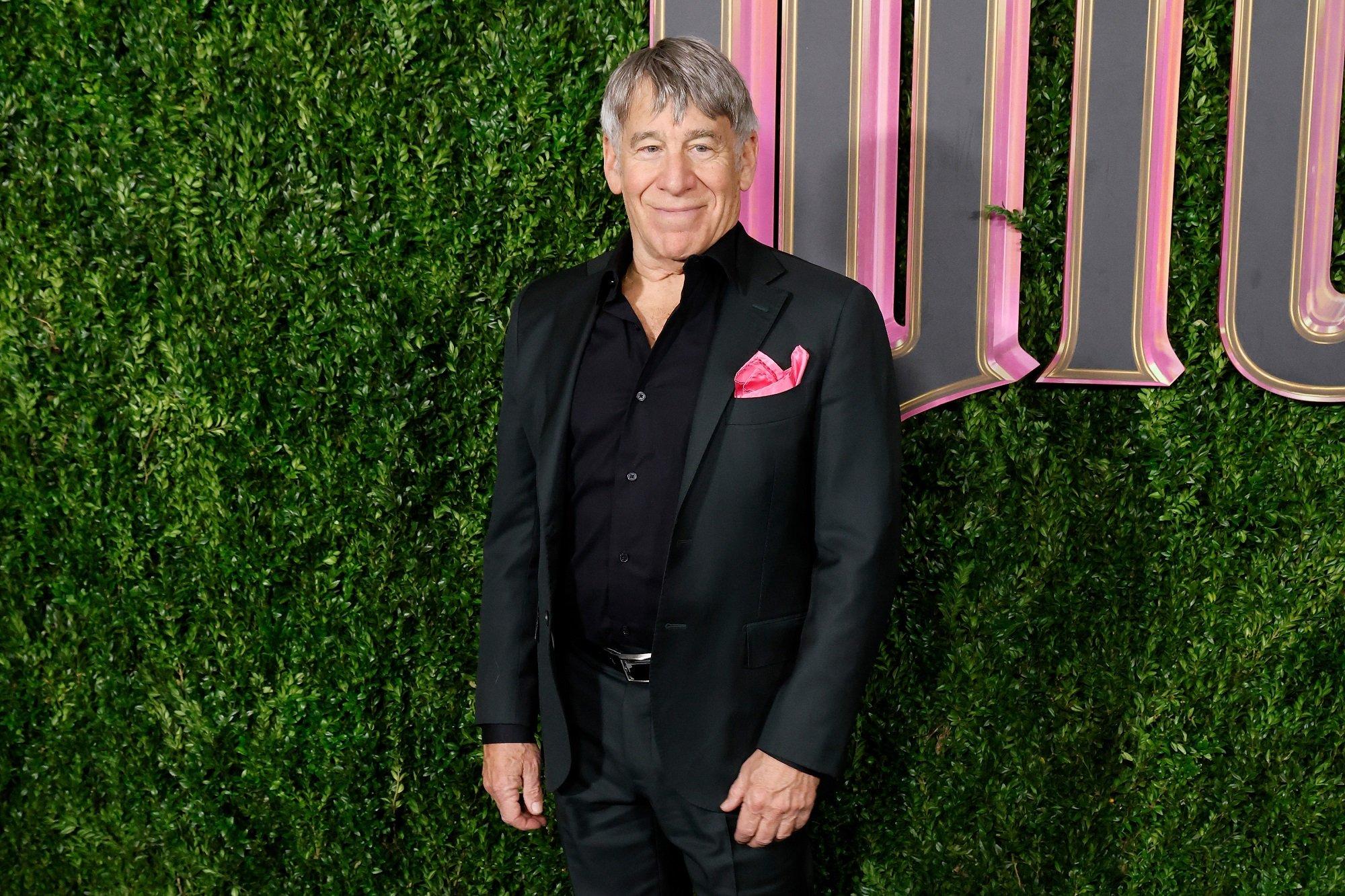
Photo: Taylor Hill/FilmMagic
interview
'Wicked' Composer Stephen Schwartz Details His Journey Down The Yellow Brick Road
Ahead of the brand-new movie musical, Schwartz details the writing and composition process, and which classic lines Ariana Grande was adamant about keeping in the script.
Many years we have waited for a gift like Wicked to appear on the silver screen.
The Broadway show and its iconic songs like "Popular" and "Defying Gravity" might not exist without the persuasion of Stephen Schwartz. The four-time GRAMMY-winning composer was instrumental in transforming Gregory Maguire’s 1995 novel about the Wicked Witch of the West’s pre-Dorothy life into a musical, before a movie.
A prequel to 1939’s The Wizard of Oz, "Wicked" the musical flew onto Broadway in 2003 starring Idina Menzel as Elphaba (the Wicked Witch) and Kristin Chenoweth as Glinda (the Good Witch). It earned a GRAMMY Award for Best Musical Theater Album and has become a mega juggernaut in pop culture. Twenty-one years later, Wicked: Part I arrives in movie theaters on Nov.22 starring GRAMMY Award winners Cynthia Erivo as Elphaba and Ariana Grande as Glinda. The soundtrack will also be released on the same day.
Schwartz, who wrote the music and lyrics for Wicked, was part of the creative team who helped bring this beloved story to new audiences. "I am so thrilled with this album for many reasons. Not obviously just the performances of Cynthia and Ariana, but the sound of the orchestra, that incredibly gorgeous, giant orchestra," Schwartz tells GRAMMY.com of the 85 musicians who recorded the songs and score at AIR Studios and Abbey Road in London.
The musical has spent over two decades on Broadway, and the film fittingly brings together many Glindas and Elphabas from the stage. Several Broadway actors are background vocalists on the album, which was recorded in part in New York City.
Wicked: Part II is expected to debut in theaters on Nov. 21, 2025, with two new songs written by Schwartz — one for each leading lady. Ahead of part one, GRAMMY.com spoke with Schwartz all about revisiting his songs for film, working with Grande and Erivo on their vocal tracks, and the musical differences between the stage and film adaptations of Wicked.
What do you think of the film after waiting all these years?
I was really happy with the movie. They were originally trying to make a movie, before I talked them out of that in 1997 and into doing a stage musical. I first heard about the book Wicked [The Life and Times of the Wicked Witch of the West] from a friend, she basically told me the title and the idea. I thought it was a genius inspiration of [author] Gregory Maguire's to have the idea to make the Wicked Witch of the West the protagonist of a story. I was immediately interested in that concept for a musical.
I discovered that the rights had been sold to Universal who were in the process of developing it as a non-musical movie. I worked my way up the Universal food chain to get to Mark Platt, who was running Universal Pictures at the time, and persuaded him not to do it as a movie — at least not right away. I felt it was likely to meet the same fate as the other Oz movie sequels had. I felt it should be a musical, and if it worked as a musical, then someday it could be a musical movie, and here we are, many decades later.
I was very lucky because I think it would have been quite unlikely for most heads of a studio to abandon a movie that they were working on and had a bit of an investment in at that point. But when I walked into the office, Mark Platt sang "Corner of the Sky" to me. So, I happened to luck into a receptive audience to my idea.
What, if any, was your input into casting Ariana Grande and Cynthia Erivo?
We’ve been lucky with our director, Jon Chu, because he is extremely collaborative. Very often, I think, if you sell your show to the movies, they say, "Thank you very much. Go away. Maybe we'll invite you to the premiere." Here we were very actively involved and part of that was being consulted on casting.
Jon Chu obviously narrowed down his choices, but sent us some screen tests, which included both Cynthia and Ariana. I was familiar with Cynthia from her stage work, and I knew that she had a world-class voice. Obviously I knew who Ariana was, but I was kind of unprepared for how great and appropriate both of them seemed in their screen tests.
Here's a fun fact about Ariana singing. Several years ago, the pop singer Mika released a single that was sort of a spin off of "Popular," called "Popular Song." He had a singer with him on that record, and that was Ariana Grande, before she was Ariana Grande.
Over the years, you had heard both of them sing your songs: Cynthia sang "Thank Goodness" in a PBS special in 2021 and Ariana sang "The Wizard and I" for the 15th anniversary of the musical on NBC. There’s this story of how Jon M. Chu first got both of them in the room together, you sat at the piano and played "For Good." What do you remember about that night?
The whole night was so amazing because they were meeting for the first time. Cynthia and Ariana had such instant chemistry; when they sang at the piano, their voices blended so beautifully together. As the composer, the fact that their voices blend so well was obviously a lucky asset. That chemistry shows up in the movie and it's a key to why I think people find the movie so emotionally satisfying.
Did you know you were going to sit at the piano and play that song?
They were like, "Let's all go inside. And Stephen, why don't you play? Ladies, if you know the words, sing along." It was extremely impromptu. Everybody cried, so it was very emotional and exhilarating.
Of all the Elphaba and Glindas you've worked with over the years, what was special about working with Ariana and Cynthia?
Both bring enormous recording skills with them. They can kind of do anything vocally in a recording studio, and they're both extremely game to try things. We would experiment and Cynthia would try various riffs that came out of the performance. Ariana, at first, was a little tentative about her soprano — which she absolutely has and always had — but had never basically shown in public before. Those sessions were really fun, because as they went on and she could hear how well she was doing, it was exciting and fun for her. They both can listen quite objectively to their performances and comment on how to tweak them.
The great advantage of both of them is that, because they are real singers and have sung on a Broadway stage, they could do live performances when filming as well. We were able to inter-cut the live performances with where we had to use pre-record because someone was flying on a broom or floating in a bubble or doing something that didn't allow them to sing live.
The way their voices sounded in the recording studio needed to match how they sounded when they were on a soundstage, and that was tricky. We had a strong technical team and we were very aware going in that we were going to mix and match.
What advice did you give them?
Just what I always do, which is to talk about storytelling and to remind them what's happening: [Glinda] trying to convince [Elphaba in "Popular"] to let her make her over — or with [Elphaba in "Defying Gravity"] — this is the moment where you demand your power.
With singers like Ariana and Cynthia, who have such great instruments and such virtuosic control of their instruments, I don't have to say things like, "You're flat" or "Sing lighter here," or give any kind of technical notes, because they just bring that. It's always about the acting and the storytelling.
How might the songs sound different in the movie versus the Broadway show? Some of them are much longer.
The word cinematic keeps coming to mind. There's this huge, magical world that Jon Chu has created and the music needed to have the size to occupy that world.
Eighty-five musicians [working in a recording studio] is different from the 23 or so that you can have on Broadway. Songs needed to be adjusted based on the action we’re seeing on the screen. In some cases, things were expanded.
What was the thought behind expanding Elphaba and Glinda’s first visit to Emerald City in the song "One Short Day?"
We wanted to show more of how the Wizard [Jeff Goldblum] was using propaganda to create a fake image and false history for himself. We had the idea [to add it] to this show they play [for Glinda and Elphaba] in Emerald City called "Wizomania," which is briefly done in the Broadway show and kind of a send up to Funny Girl and Jule Styne-type rhymes. "Wizomania" is basically perpetuating the myth that there were ancient magical, wise ones in Oz, who set down all their magic in a book, but they put it in a secret language. That book is The Grimmerie.
We knew that book was very important to the story of the movie, and so we wanted to go into more depth about it. There was a prophecy that when Oz fell into difficult times, someone would come who would be able to read The Grimmerie and restore Oz to merriment. They're looking for someone who could actually read this book and actually do some magic to help the Wizard stay in power.
You also make a cameo at the end of the song as they approach the gates to see the Wizard!
Jon Chu said to [screenwriter and the musical’s book writer] Winnie [Holzman] and me that we should be in the movie. So we wrote ourselves in. We were just going to be people in the crowd.
When we first did "One Short Day," I had cut that last line "The Wizard will see you now!" — I thought we don't need to do that in the movie, because we'll just see them right there at the palace. And Ariana said, "If you cut that line, I'm quitting the movie. You have to have ‘The Wizard will see you now!’"
It wound up being my line. I will say that when I went in for costume and makeup, they gave me two choices of mustaches. I said they had to give me the big mustache because I have to be like Frank Morgan. I have to be the guy [from the 1939 film] who says, "Who rang that bell?"
I think fans would be devastated if that line wasn’t in it.
One of the things that was so good about this team — particularly Jon Chu and Ariana, because she knows the show so well — was that they protected Winnie and me. We said we’ll change whatever we need to change and Jon would say, "No, you can't change that. You have to keep that."
Greg Wells, our producer, wanted to refresh the rhythmic feel of "Popular" and make it a little more contemporary. Greg came up with something which was really fun, and we played for Ariana. And she said, "Absolutely not. I want to be Glinda. I don't want people to think that I'm Ariana Grande playing Glinda. If they hear this kind of different rhythm, they're going to think you changed it because of me, and I don't want to do that." So then we went back to the original.
Do you think we'll ever see Ariana and Cynthia on Broadway again?
You might. I don't think right away because they're going to be doing another year of promoting [the new film]. I could see the circumstances where years from now they're doing Gypsy or somebody writes a musical built for one of them. I could definitely see it.**
Latest News & Exclusive Videos
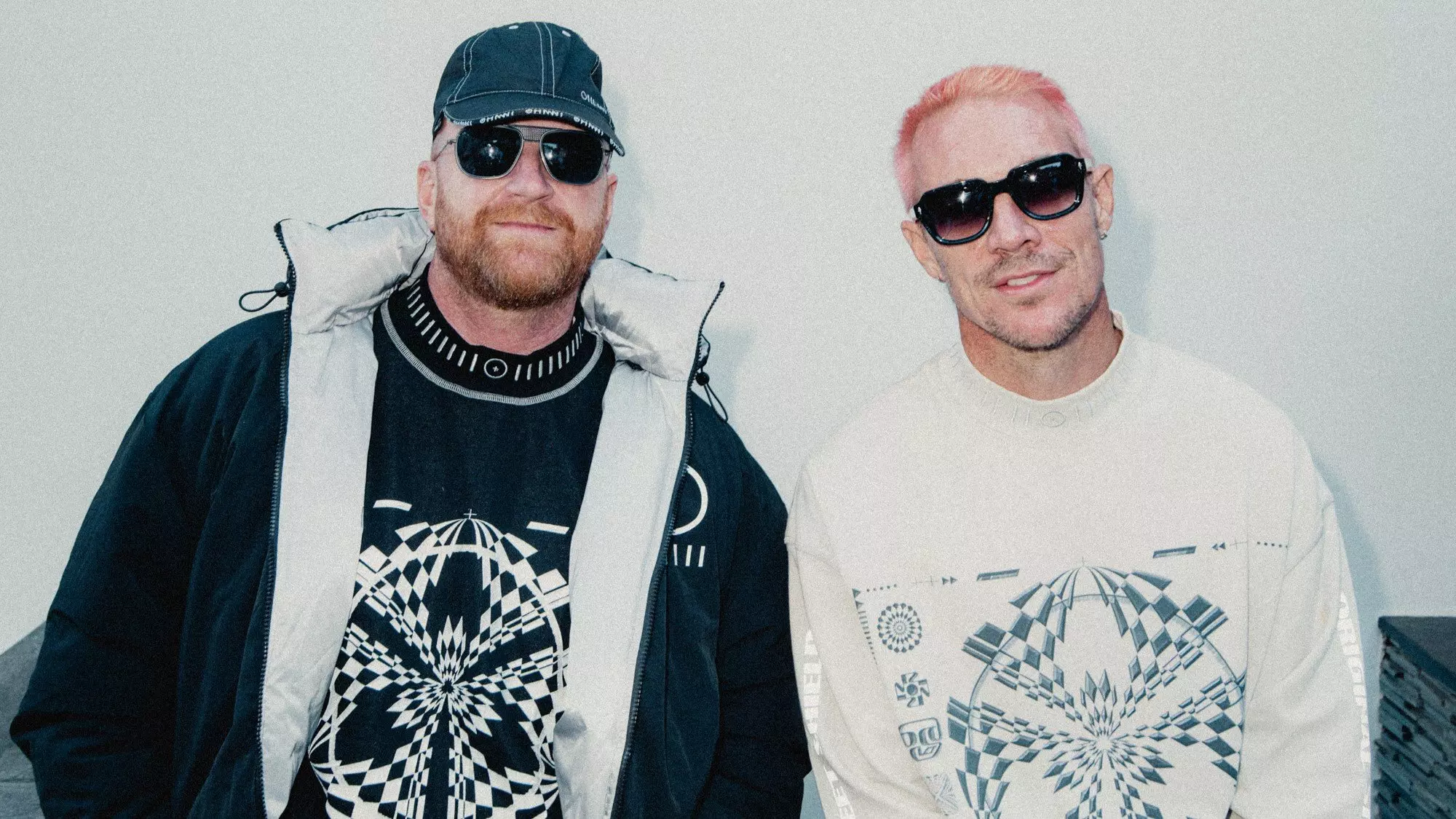
How Major Lazer's 'Guns Don't Kill People…Lazers Do' Brought Dancehall To The Global Dance Floor

YOASOBI Performs "Idol" | Global Spin
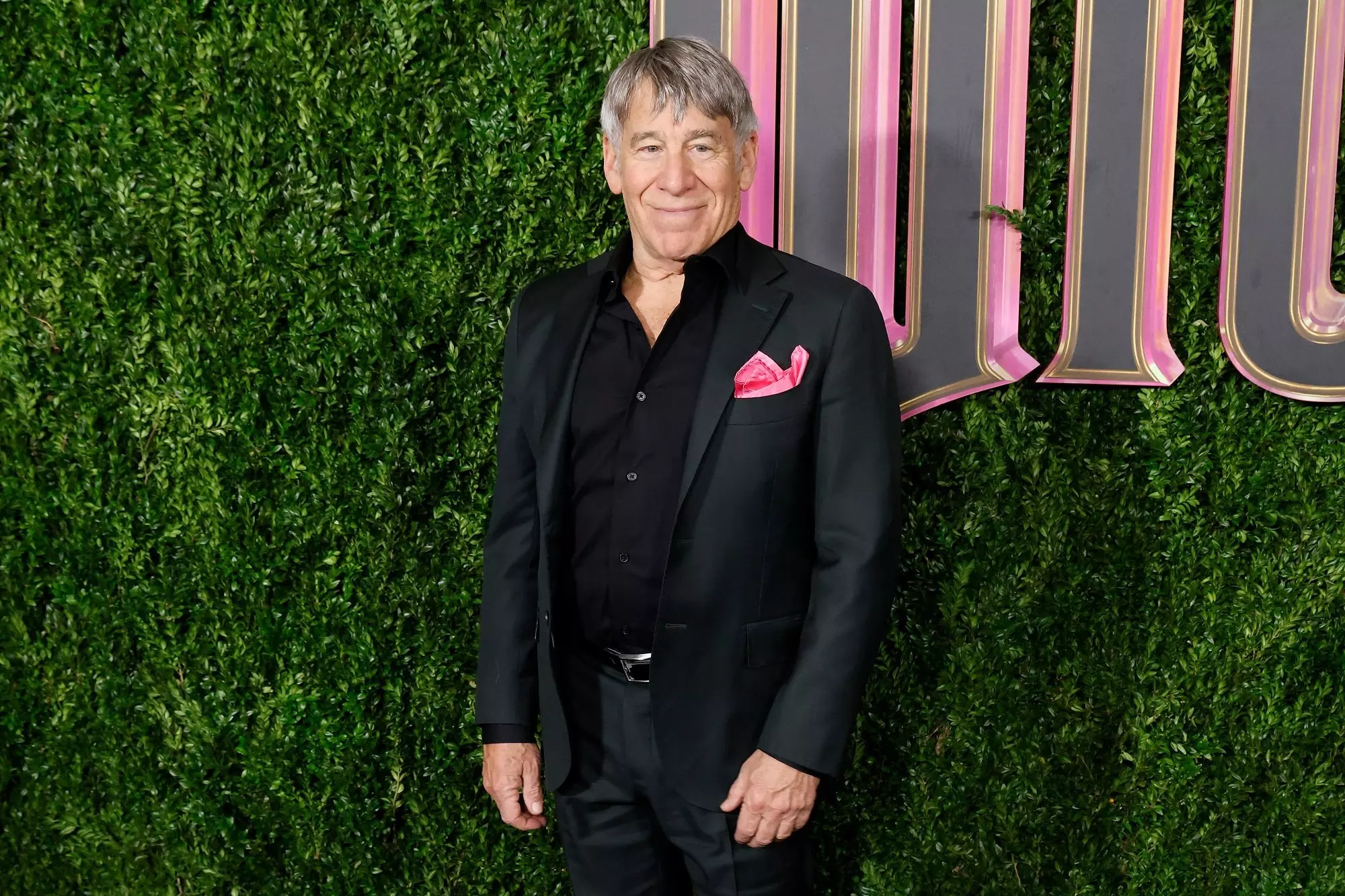
'Wicked' Composer Stephen Schwartz Details His Journey Down The Yellow Brick Road
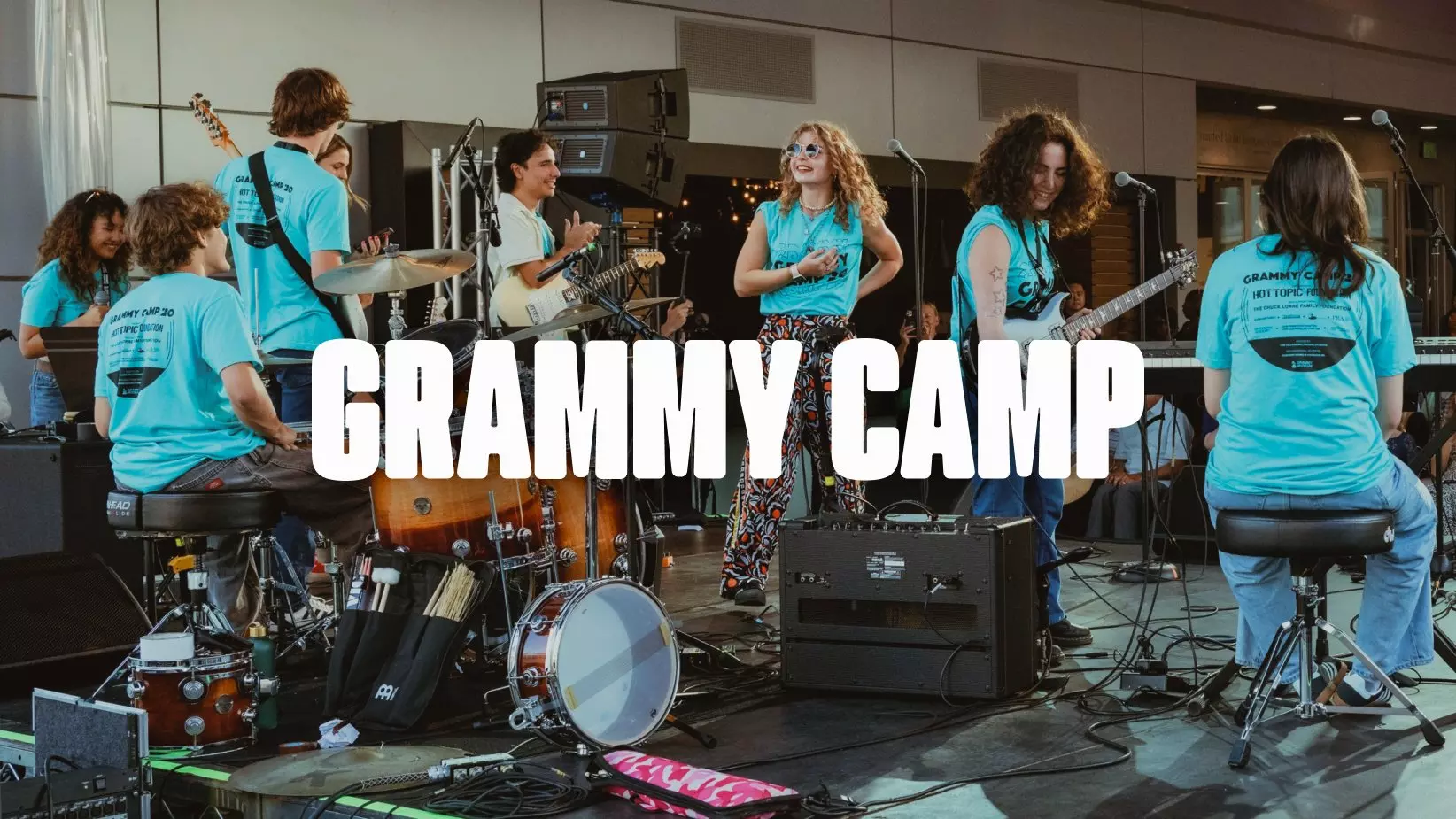
GRAMMY Museum Expands GRAMMY Camp To New York & Miami For Summer 2025
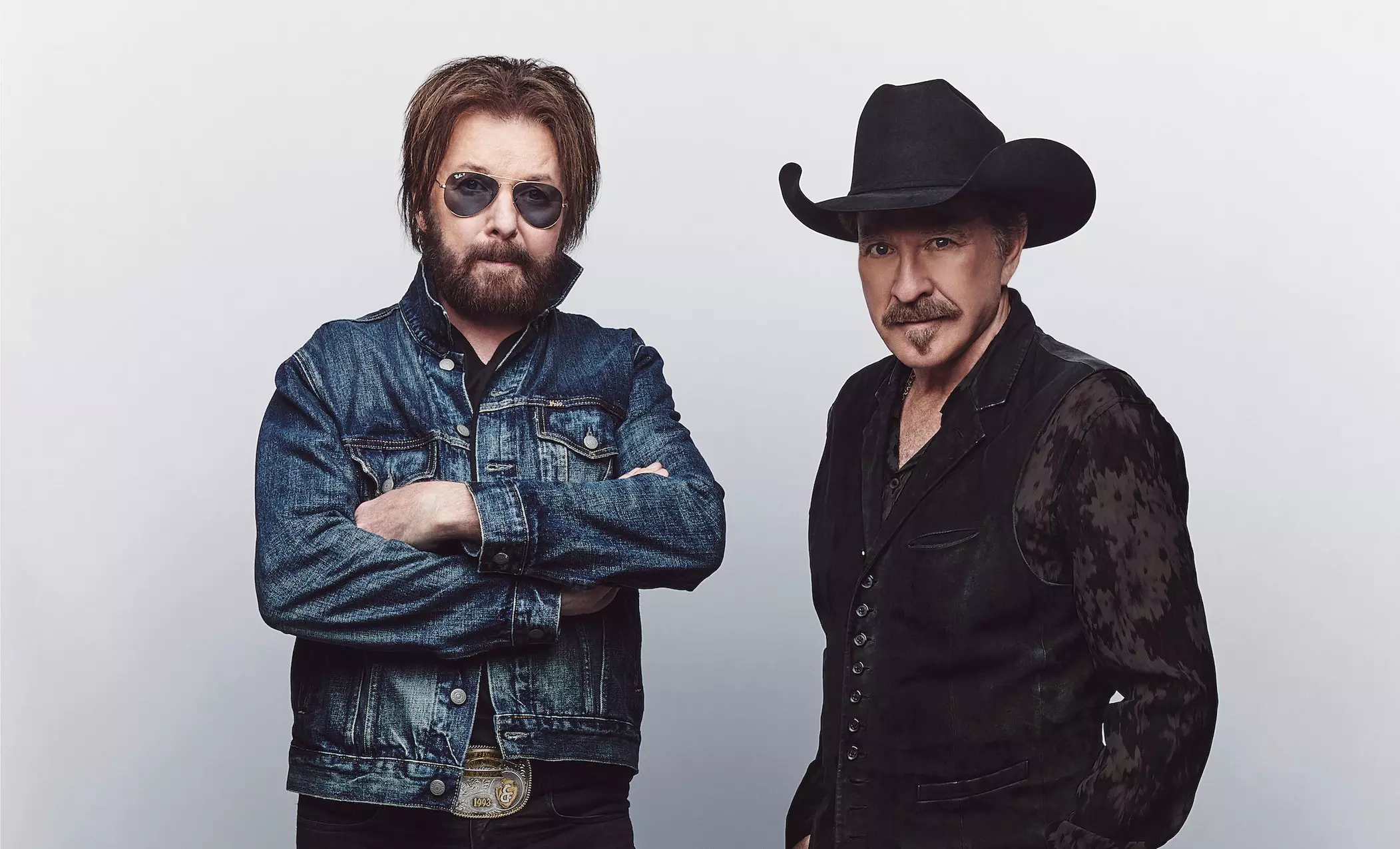
Living Legends: Brooks & Dunn On How 'Reboot II' Is A Continuation Of "Winging It From Day One"
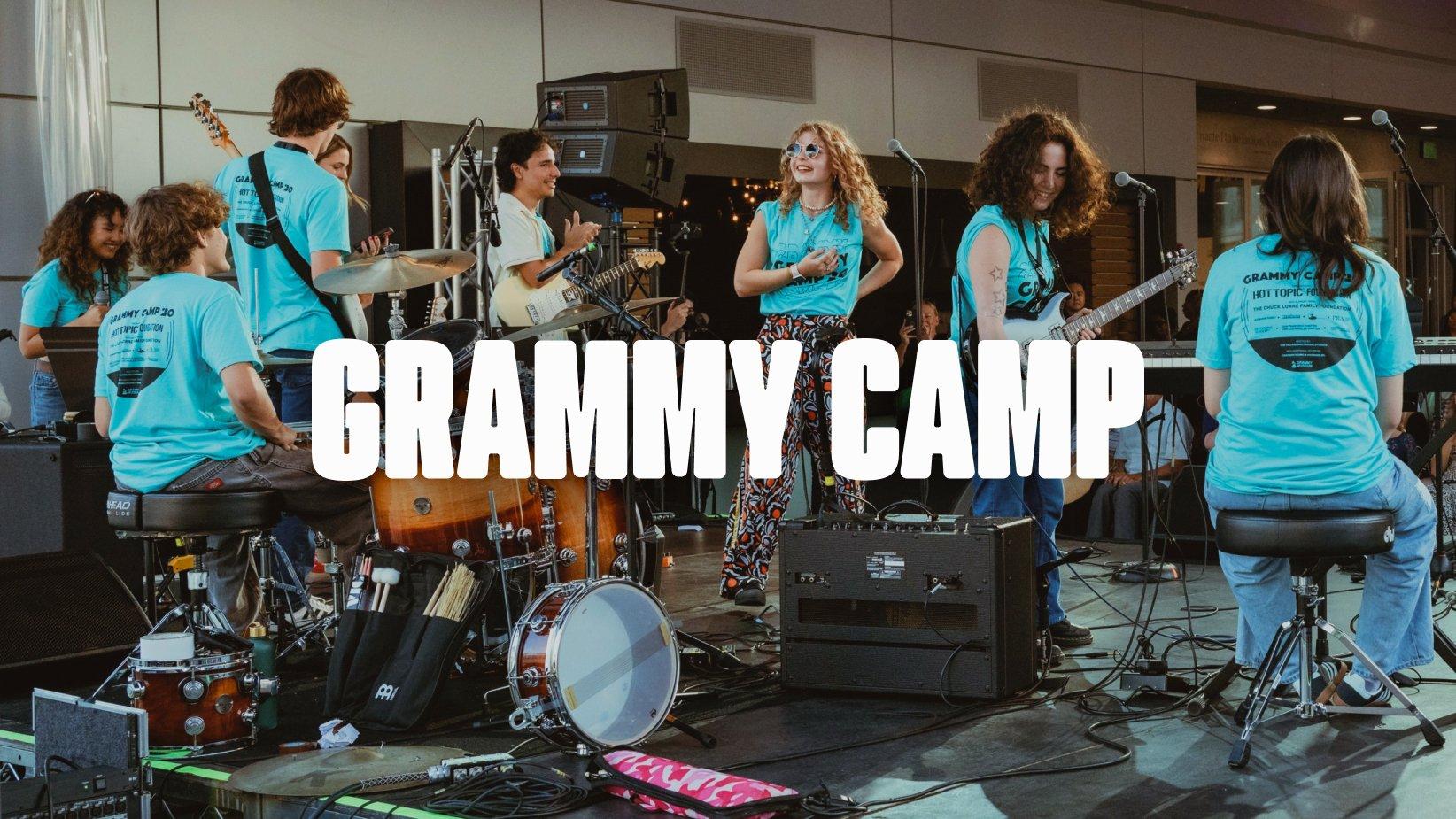
Photo/Graphic courtesy of the GRAMMY Museum
news
GRAMMY Museum Expands GRAMMY Camp To New York & Miami For Summer 2025
The GRAMMY Museum broadens access for aspiring young musicians and creative entrepreneurs nationwide with new GRAMMY Camp locations in New York and Miami, in addition to its flagship Los Angeles program.
The GRAMMY Museum is making its prestigious GRAMMY Camp program more accessible to high school students across the United States by expanding to New York and Miami in summer 2025. Known for its immersive, week-long curriculum, GRAMMY Camp provides aspiring musicians and creative entrepreneurs with real-world insights into the music industry.
Now in its 21st year, the 2025 GRAMMY Camp will be hosted in three locations next summer:
Art House Studios, Miami, FL – June 8-14, 2025
Evergreen Enterprise Experience, Los Angeles, CA – July 13-19, 2025
Engine Room Audio, New York, NY – July 27-Aug. 2, 2025
The program offers career tracks including Music Business, Instrumental Performance, Electronic Music Production, Songwriting, and Vocal Performance. Each location will also tailor its curriculum to highlight the city's unique musical heritage, incorporating specialized tracks such as Musical Theater, Jazz and Latin Music, and DJ-focused music production.
"Expanding GRAMMY Camp from one to three cities enables us to deepen our engagement with the next generation of music makers,” said Michael Sticka, President/CEO of the GRAMMY Museum. "Our new locations in Miami and New York mark just the beginning of our long-term plans to build upon the lasting impact we’ve made in Los Angeles, making the program more accessible to young people across the country.”
Participants will learn directly from GRAMMY-winning and nominated professionals, industry experts, and notable guest artists. Students are immersed in a collaborative environment where they are selected for one career track but have the opportunity to interact and collaborate with peers across all disciplines.
Applications for GRAMMY Camp 2025 are now open to high school students nationwide. Interested students can apply at the GRAMMY Museum website.
Latest Recording Academy News & Initiatives
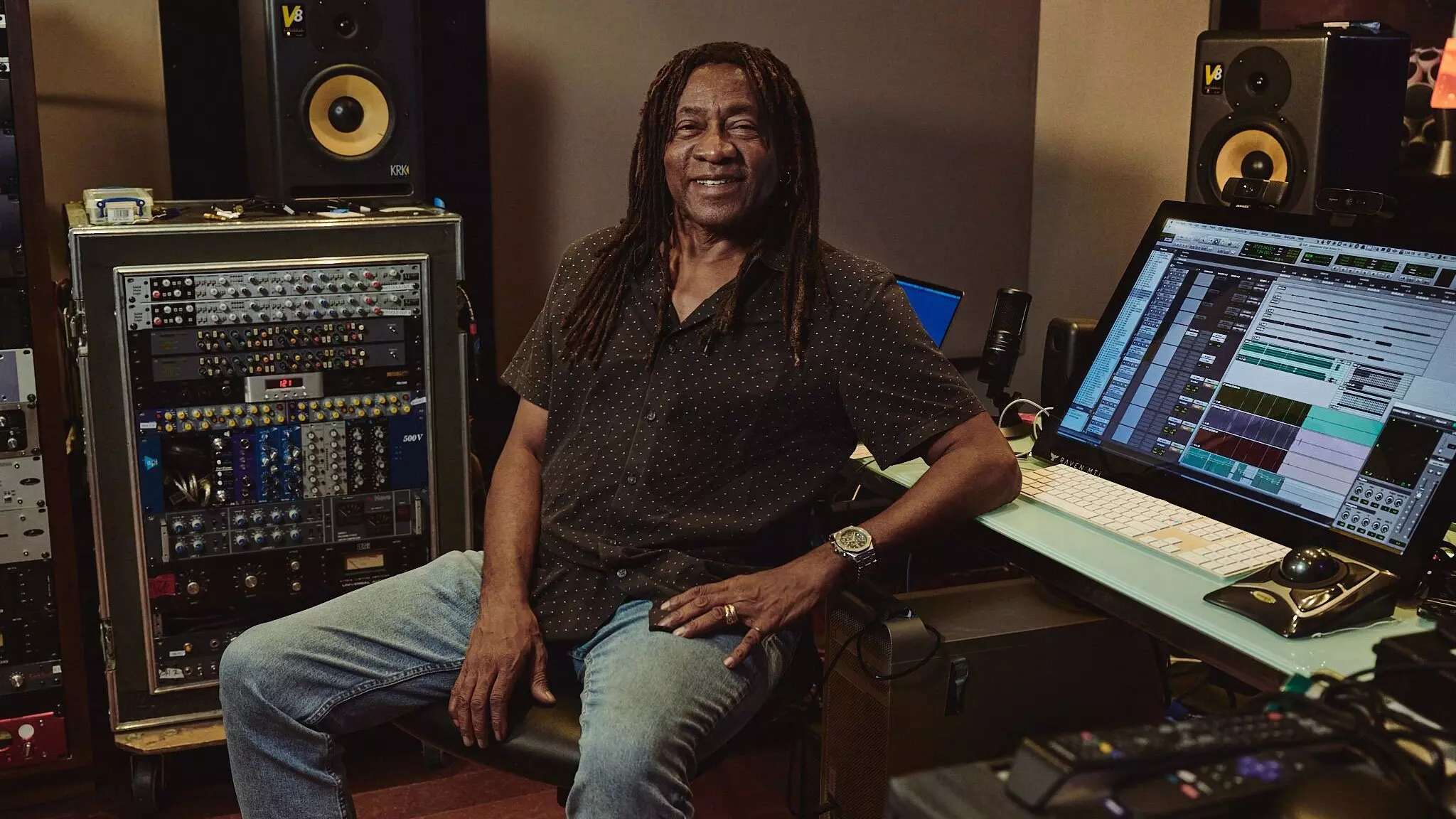
The Recording Academy Producers & Engineers Wing To Honor Jimmy Douglass During 2025 GRAMMY Week Celebration
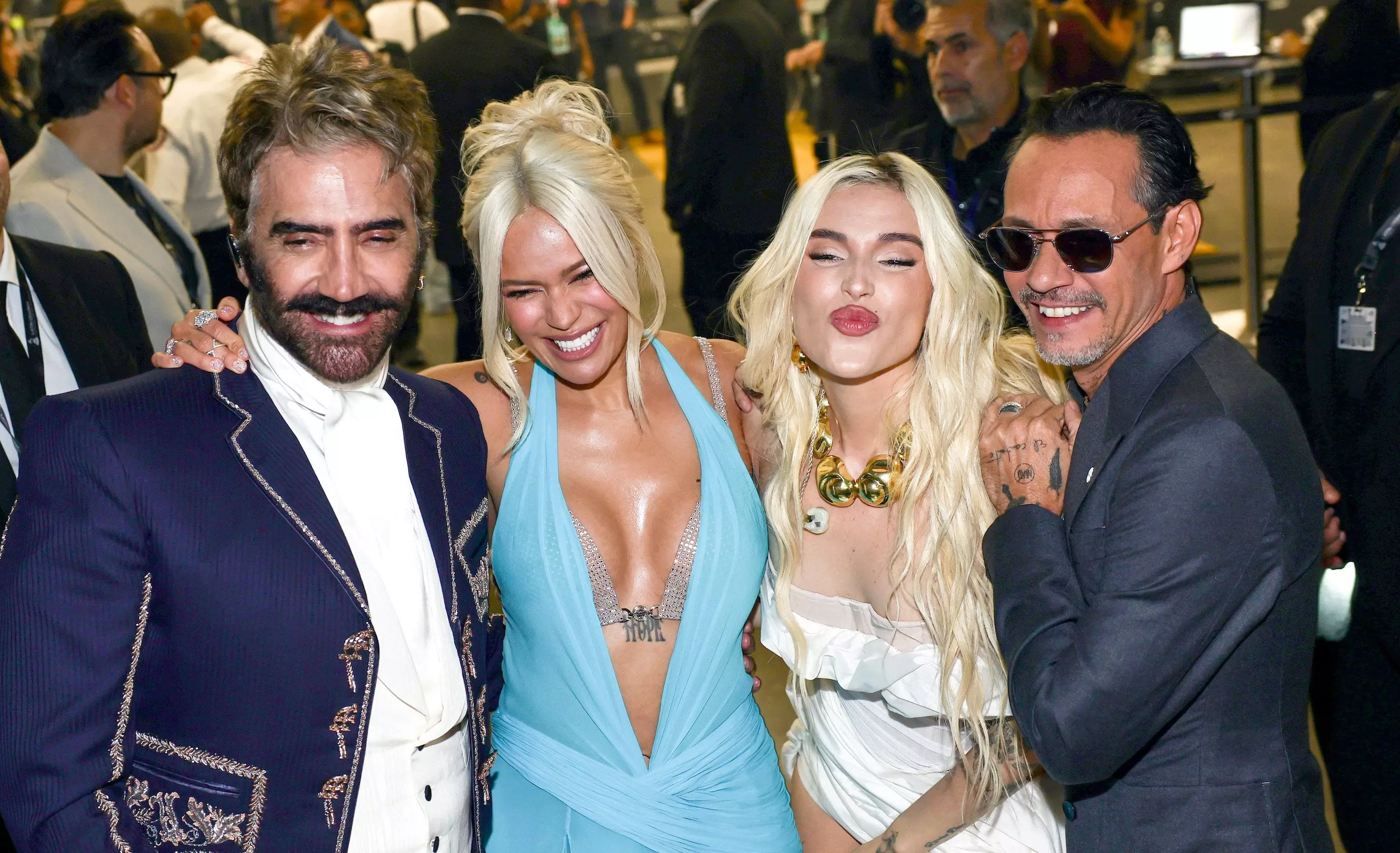
10 Meaningful Moments From The 2024 Latin GRAMMYs: Karol G's Heartfelt Speech, Tributes To Late Legends & More
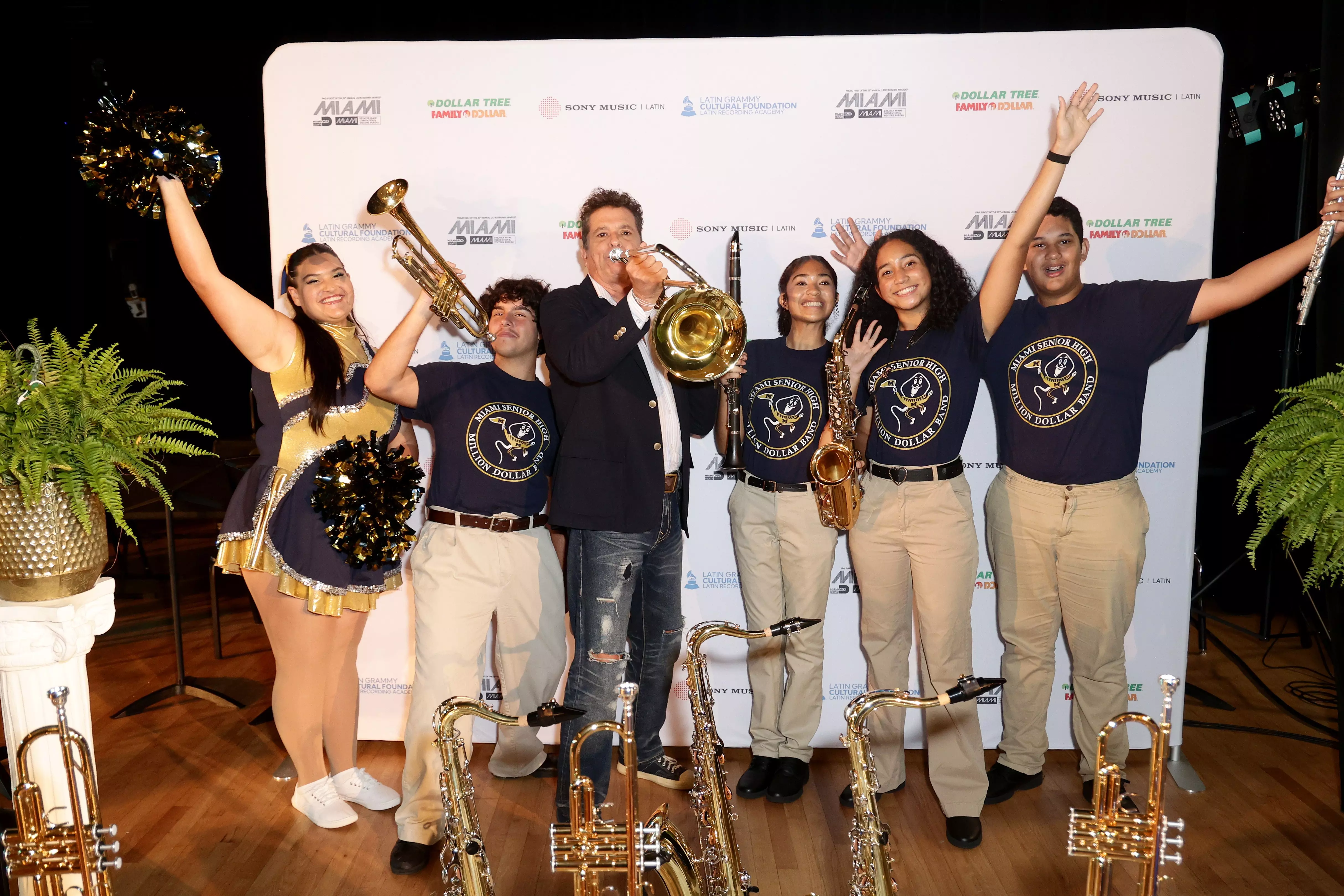
Behind The Scenes At Latin GRAMMY Week 2024: Inside VIP Celebrations & More
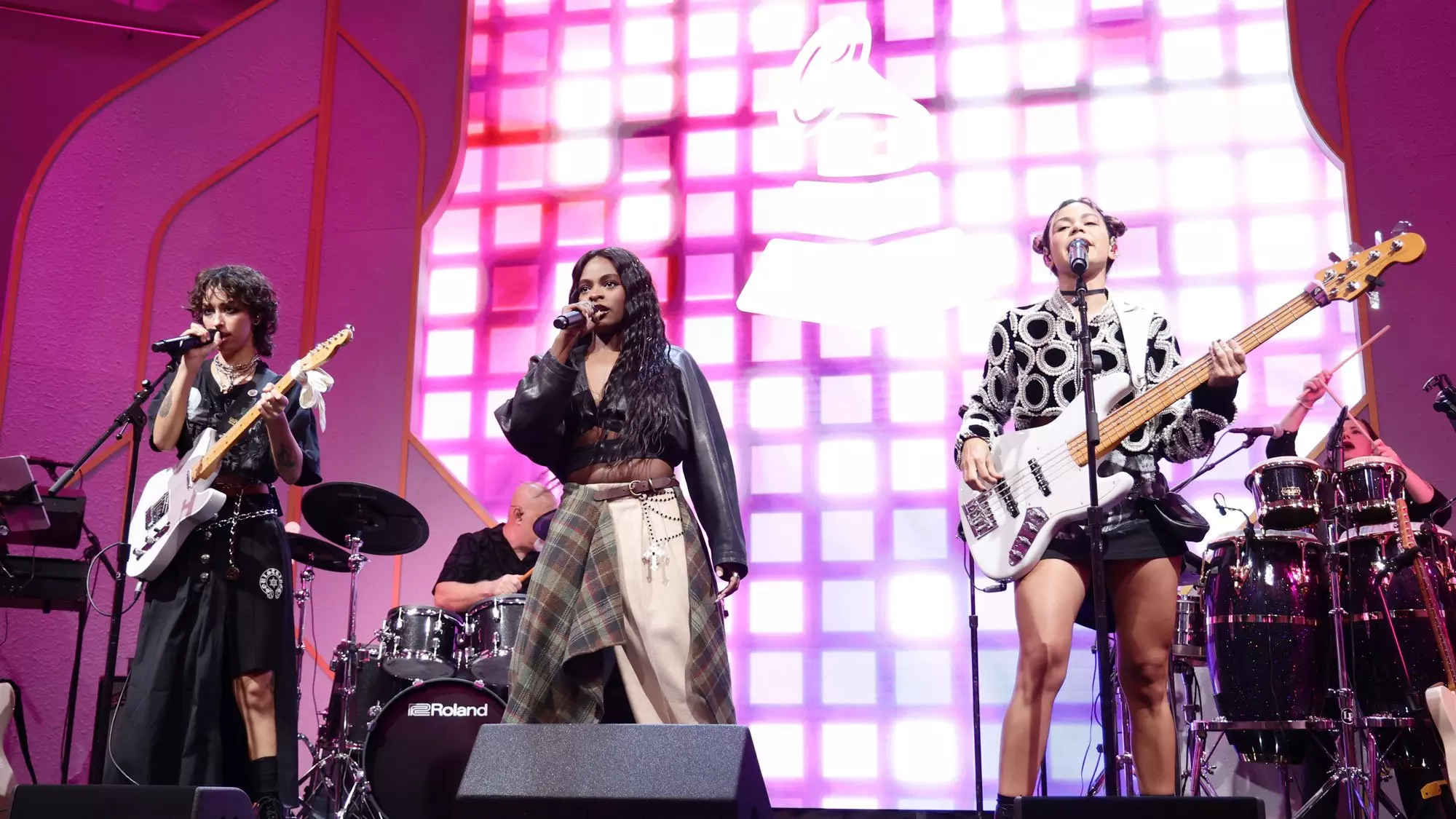
Agris, DARUMAS, Ela Taubert, Kevin Aguilar & More Perform At The 2024 Latin GRAMMYs Best New Artist Showcase
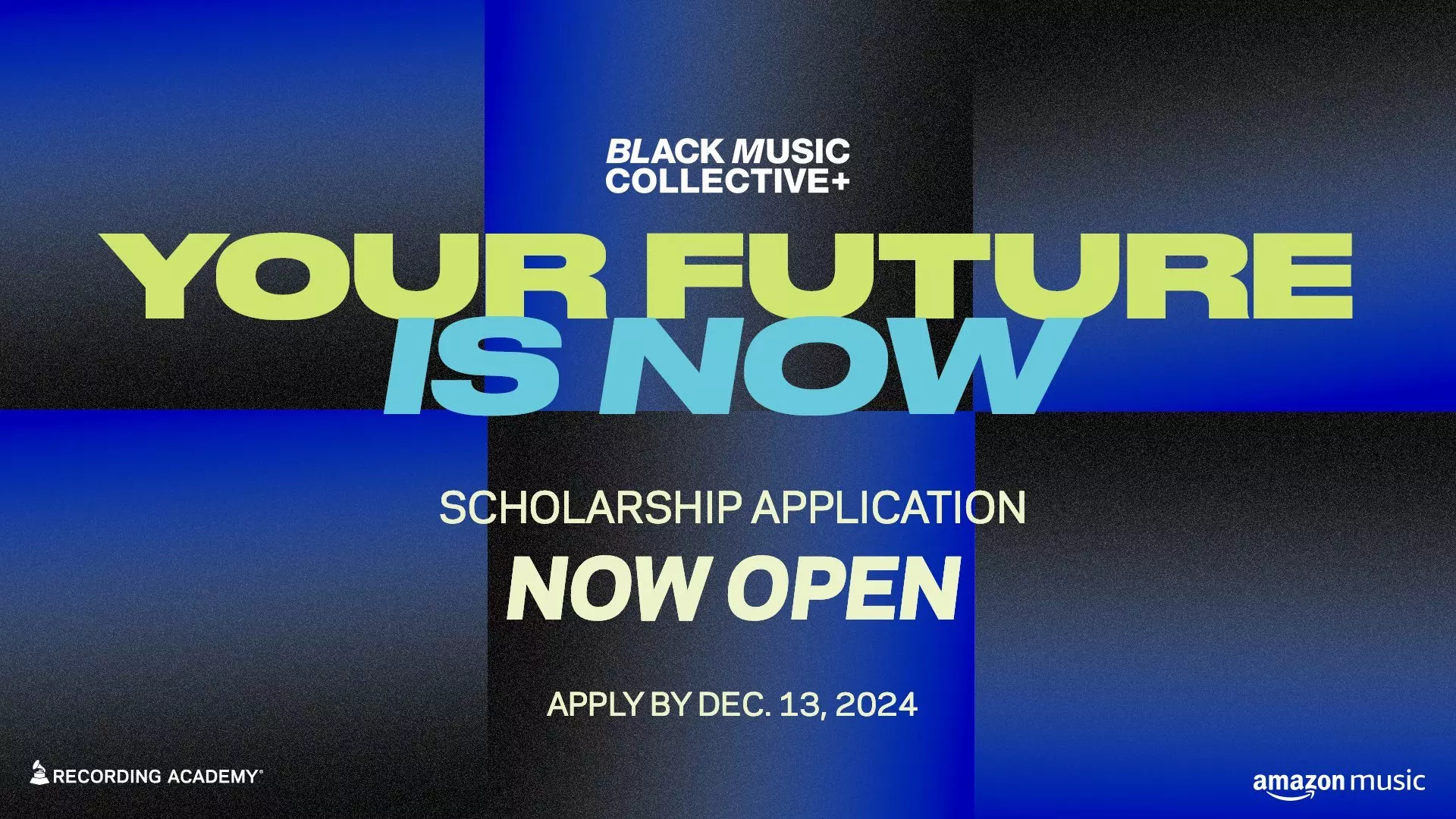
Amazon Music & Black Music Collective Announce Fourth Annual 'Your Future Is Now' Scholarship Program For HBCU Students
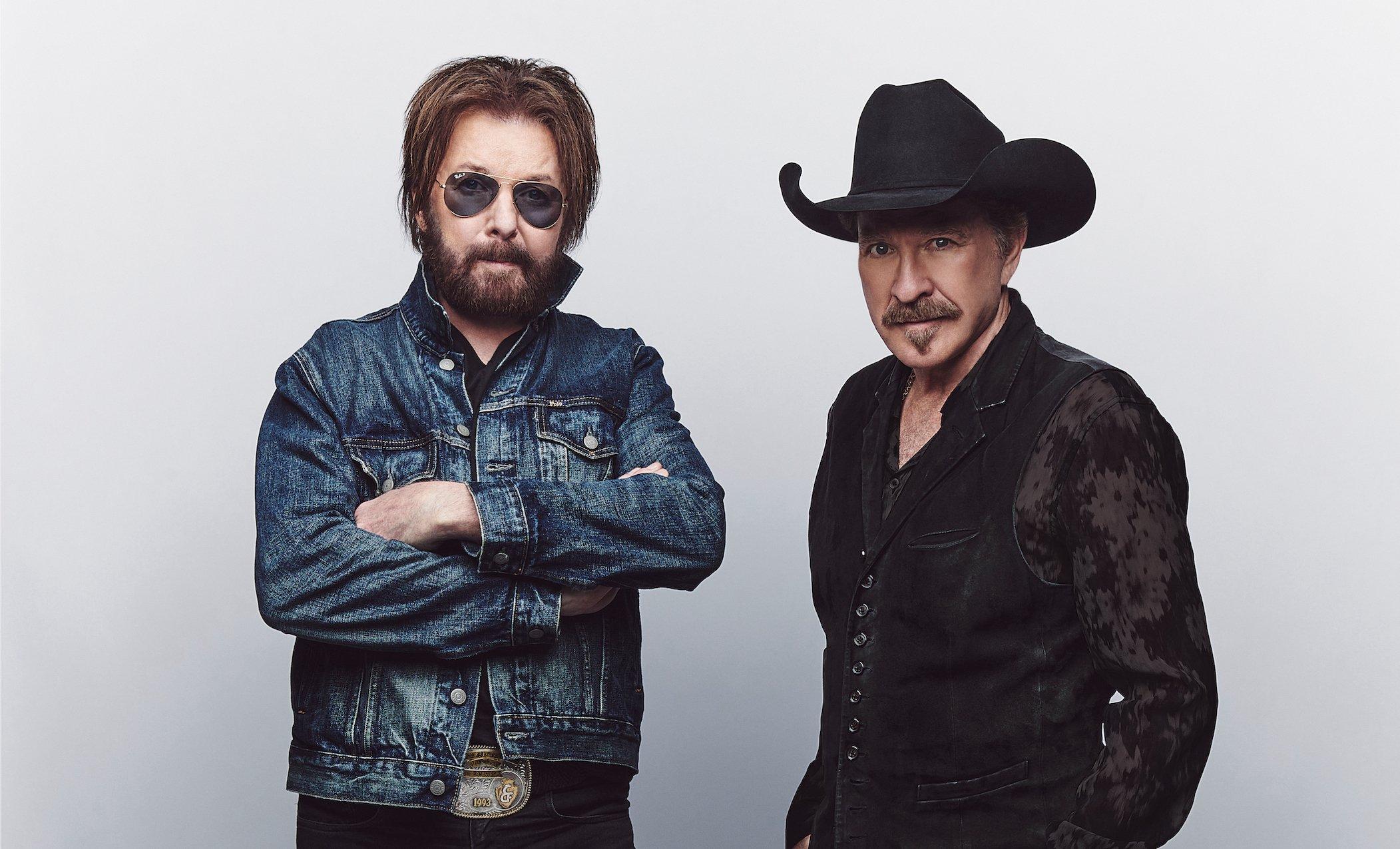
Photo: Matthew Berinato
interview
Living Legends: Brooks & Dunn On How 'Reboot II' Is A Continuation Of "Winging It From Day One"
The iconic country duo detail how their latest collaboration project — which includes covers by the likes of Jelly Roll, Lainey Wilson, Riley Green and more — came to be, and how it may have inspired them to continue the legacy they've built.
Since bursting onto the scene in 1991 with their debut single and No. 1 hit "Brand New Man," Brooks & Dunn have gone on to not only become country music icons, but an inspiration to countless artists that have followed them. That influence has led to not one, but two albums dedicated to their legacy: 2019's Reboot and Reboot II, which just dropped on Nov. 15.
While the first Reboot is filled with features from fellow country power players such as Luke Combs, Kacey Musgraves, and Thomas Rhett, Reboot II sees the duo dabbling with rock (Halestorm), bluegrass (The Earls of Leicester), and blues (Christone "Kingfish" Ingram). Of course, the 18-track Reboot II has plenty of country to it, too, with the likes of Lainey Wilson, Riley Green and other torchbearers of the modern country movement offering their takes on classics like "Play Something Country" and "She Used to Be Mine."
Between the two Reboot albums, 15 of Brooks & Dunn's 20 No. 1 hits are reimagined. Six songs appear on both, but certainly don't sound like reiterations; for one, "Boot Scootin' Boogie" went from a true-to-form collaboration with Midland on Reboot to a hard-rock thrasher by Halestorm on Reboot II. Whether the songs stick to the original blueprint or take on entirely different forms, the Reboot albums celebrate the timelessness and versatility of Brooks & Dunn's music — and as Kix Brooks insists, it gives the duo a hint of excitement more than three decades into their career.
"At least with this Reboot series people will be going, 'Holy crap, I can't believe they freaking did that!,'" Brooks tells GRAMMY.com. "At this point in our careers we want some kind of reaction, good or bad, so let's stir it up."
The two-time GRAMMY-winning duo caught up with GRAMMY.com to talk about their favorite moments from recording Reboot II, how the genre has changed since their breakthrough, and why there's a "good chance" new music may be on the way.
How'd the idea for this Reboot series start?
Ronnie Dunn: It was completely not our idea, but rather our manager's, Clarence, who never has a good idea [Laughs]. He did all the legwork, calling only once so to not pester people. If we didn't get a call back, that was fine, we'd just move onto the next one. But everyone he called got back to him and said they wanted in.
**There's a handful of songs — like "Neon Moon," "Indian Summer" and "Brand New Man" — that are on both Reboot I and II. What was the intention behind that?**
Dunn: It was more about the freedom of the other artists to choose whatever songs they wanted. We didn't dictate anything.
**On Reboot II, you went beyond the country realm. What was it like learning to navigate the songs in an entirely new way?**
Dunn: There's an adage that country music fans don't really embrace change that fast, and because of that, there's some stuff on this record that scared me at first.
At the same time, it's fun to go online on occasion to see the comments about the songs that have some saying, "That's wrong, it shouldn't be done that way," and others saying, "This is great stuff." There's a little danger element for us as a result, like, we could get kicked out of country music for two or three songs here [Laughs]. But it could also be the best way to earn a GRAMMY.
I think it's also evidence of how much your music and legacy is appreciated even outside of country music, when you have all these folks from other music circles involved and resonating with your songs.
Dunn: That's been a key for us, being able to go out and bring in new fans without alienating the steadfast group we have chasing us around now.
Kix Brooks: There's certainly two approaches to making a record like this. The first one is re-cutting the songs the way we always have, but there's already been so many tribute records like that where I've dropped a needle on two or three songs and went, "Okay, now I don't really care anymore." At least with this Reboot series people will be going, "Holy crap, I can't believe they freaking did that!" At this point in our careers we want some kind of reaction, good or bad, so let's stir it up.
The first [Reboot in 2019] was a bit more organized, but with this one we encouraged everyone to run with their wild ideas. Several of them even brought in their own bands this time, which only Kacey Musgraves did the first time around.
Dunn: She was the only one that deviated from the norm, but this time it's nothing but that in spirit. That's what made it fun — because deep down, Kix and I are just songwriters, so to hear a fresh twist put to this stuff is legitimately really fun.
Speaking of fresh twists, tell me about bringing Halestorm in to record "Boot Scootin' Boogie."
Dunn: That's the song I'm most afraid of, even though I love what they do and what they did to the song. It was my crazy idea making the call to our manager to see if we could get someone like Metallica to cover the song, and they did everything we asked them to do. This is music, not life and death. We're out here just having fun and seeing what we can do.
Brooks: There were a couple cool moments with [producer] Dann Huff. Halestorm had just come into the studio from having just sold out [OVO Arena Wembley in London] two days prior to making it back to Nashville to cut this thing. Despite this, when they came in, they were prepared. They had rehearsed and learned the song and the way they wanted to do it, then they hit it.
I remember Dann getting the biggest grin on his face as he looked over to the console and said, "This band is so freaking good!" They were really tight and brought it every time. And the way [Lzzy Hale] can sing is mind-boggling.
Dunn: She can sing like she's gargling a chainsaw, and the next day still go do a show. If I did that I'd be down for a week!
That song, along with others like the Earls of Leceister's "How Long Gone," A Thousand Horses' "Drop In The Bucket," and Marcus King's "Rock My World (Little Country Girl)" that deviate from the norm are my favorites on this project. I love how y'all really let each guest artist make the tunes their own.
Brooks: Marcus King was one that really blew me away. That guy sings so high! There was a point in the song where I asked Dann if I could have a moment with Marcus. [I] proceeded to tell him, "[Your] guitar solo is 16 bars, but do you have a problem with going ahead and throwing down 32 instead?" He lit up and yelled to his band, "Alright, enough of this Nashville bulls—. We're freaking South Carolina sons of b—es, now lets play!" Almost like a football cheerleader. It was awesome.
Dunn: Back in the day when we were in college, I lived for guitar solos that go on forever. So it was so refreshing to hear that, especially in Nashville. We've come from a commercial slant of things for so long that it was like freedom breaking away from that formula.
Do y'all have any plans to continue this Reboot series and possibly break into even more genres, like Latin music or hip-hop?
Dunn: We've been winging it from day one, man. We never plan anything. Never have, never will.
Brooks: When we were making Reboot I, [if] you asked if we'd make another, I would've said that I don't think there's any room for that. We just did it, and I'm glad as hell we did because it's a totally different experience where you never know what's coming next.
If you could choose any musician(s) to do a Reboot collab with dead or alive, who would they be?
Dunn: That's a tough question, but let's start with the [Rolling] Stones, Eric Clapton, Paul Carrack, and Stevie Ray [Vaughan].
Brooks: I was thinking Tom Petty and Mike Campbell…
I guess any collaboration is possible nowadays with AI.
Dunn: Talk about frightening.
What's the most important lesson y'all have learned in the past 30+ years of Brooks & Dunn?
Dunn: How big a part of the whole success equation that luck plays. Everybody asks what is it? Is it luck? Is it persistence? Is it patience? We're just sitting around here goofing off, and things like this drop out of the sky on us, which they seem to have done for 35 years now.
Brooks: The timing was just right. The fact that we literally got put together by a record [label] guy in 1990 and had four No. 1 hits in a row is just stupid, especially to be here 34 years later still having the time of our lives and selling out shows.
Dunn: In 1988, I was playing beer joints in Oklahoma and sneaking over to Texas with a van and a horse trailer carrying our equipment, loading it up, putting it on stage, and all that. In early 1991 we had our first No. 1 hit ["Brand New Man"]. It just fell out of the sky on us.
Brooks: That's how weird it was. We didn't even have Instagram or the internet to help us out!
Since you mentioned the internet, I know a lot has changed in country music since y'all were first breaking through. What are your thoughts on that evolution and how things are, or aren't, different now?
Dunn: We've seen it go through several phases and watched many artists come and go, like with the Bro Country era.
Brooks: There's some artists like Bailey Zimmerman who got big from throwing stuff up on TikTok before getting a band together and playing in clubs, but they're really good and the songs are there nonetheless. It'll be interesting to see how all that plays out in the long term. However, there's also a bunch of artists out there still piling into vans going from gig to gig trying to figure out who's sober enough to drive tonight, which is where we came from.
I talk with a lot of young acts and all they want to talk about is their socials and how this one song blew up, but eventually at some point I can't help myself and go, "So, are you playing out? Have you got a band? How many gigs did you do last year? Are you completely obsessed with getting out and playing for people?" because that's where Ronnie and I came from.
Dunn: It's like working out in the gym. If you want to be a professional football player, you've got to go play and come up through the ranks and bang your head in the bars, that kind of stuff. Of course now you don't, which is just kind of hard to digest. But there's nothing negative about the process. It's just a sign of the times and how it's changed.
Brooks: I have seen some acts that just look real uncomfortable on stage, and I'm like, "I hope you can hang in long enough to figure this out, because you obviously haven't done this very much."
Dunn: We had immediate feedback in those clubs. All you had to do coming through the bars was play covers, you couldn't really get away with doing original songs.
I remember playing four sets a night and sneaking "Boot Scoot" in during the third one time only to have a group of girls walk over afterward asking if I'd play it again. They didn't know the name and weren't familiar with the lyrics, but it had a beat that immediately appealed to people. Sure enough, that's one of the songs that got us off the ground. I guess that's a role that social media fills now, but I'd rather be looking someone in the face when they tell me that they love my singing or a particular song.
What do you each appreciate the most about one another as bandmates and counterparts?
Dunn: I think that the biggest thing we appreciate about one another is that we were grown men when we showed up to the game. And we kind of look at the world through the same eyes. We don't always agree, but when we do have those disagreements, we've never raised our voices to one another or had a serious falling out in any way. I'm proud of the way we've kept the partnership alive over the years.
Brooks: It's hard to put a finger on the chemistry that has made us successful and kept us together. Ronnie is obviously a great singer and even though I can sing a little too along with playing guitar and harp, I think it's what we've always brought to the stage that has a lot to do with our longevity, which is what folks want to come and be a part of. We've written some good songs together and I don't think we're done yet, but putting 'em out there live and sharing that love for what we do is really what we both live for.
Has working on Reboot inspired y'all to record any new music in the future?
Brooks: This last project has been a great reminder how much we enjoy making music. There's a good chance this will motivate us further to release some of these new songs we've been working on.
Dunn: I've been working on trying to make a new record happen over the last three or four years, writing nonstop. I know Kix is working on it, too. We just have to get around to taking the time to sit in the studio after Reboot runs its course and come up with an original Brooks & Dunn record. But it has to be good, dude.
Latest News & Exclusive Videos

How Major Lazer's 'Guns Don't Kill People…Lazers Do' Brought Dancehall To The Global Dance Floor

YOASOBI Performs "Idol" | Global Spin

'Wicked' Composer Stephen Schwartz Details His Journey Down The Yellow Brick Road

GRAMMY Museum Expands GRAMMY Camp To New York & Miami For Summer 2025

Living Legends: Brooks & Dunn On How 'Reboot II' Is A Continuation Of "Winging It From Day One"
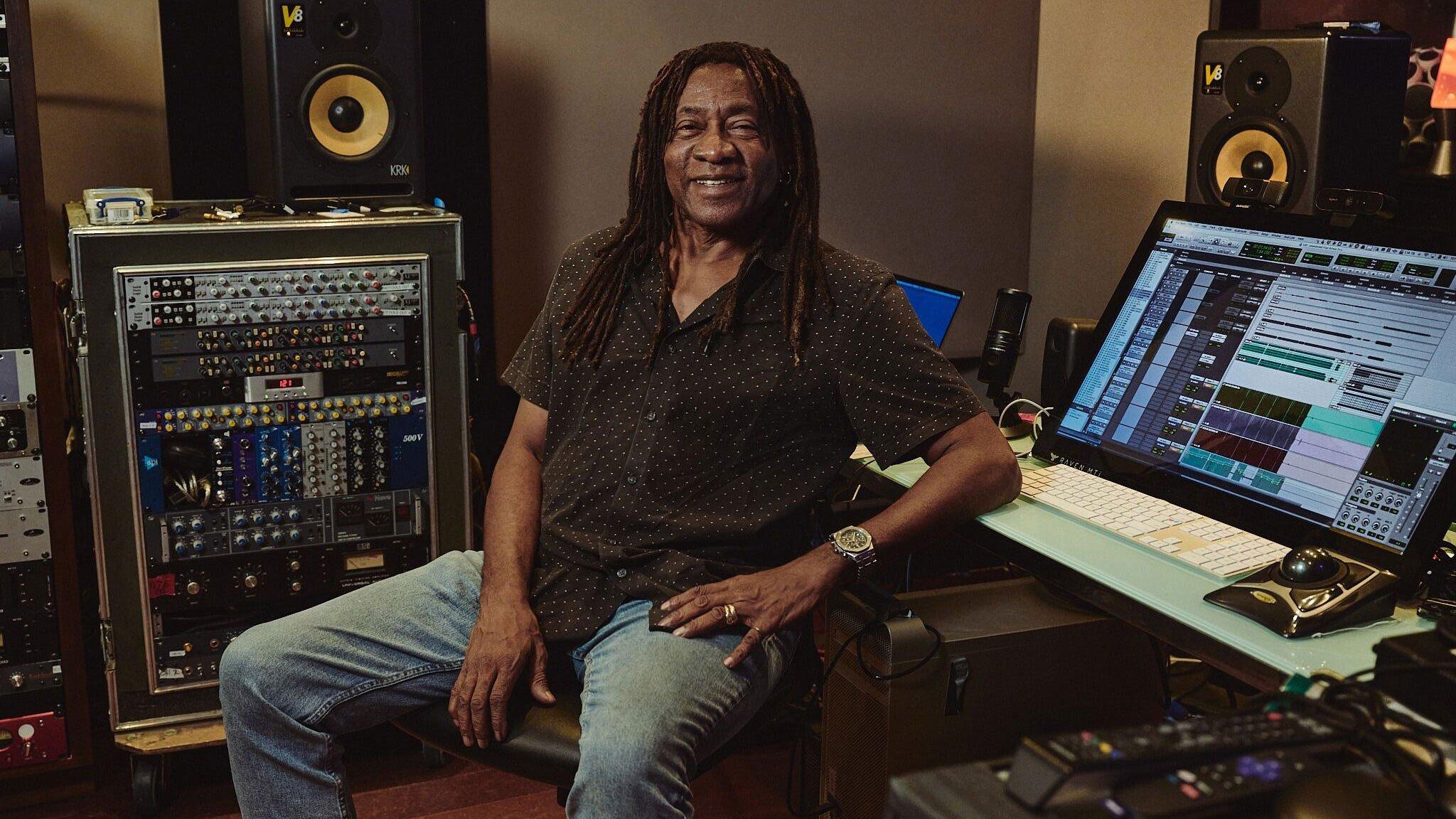
Photo: Federico Vélez
news
The Recording Academy Producers & Engineers Wing To Honor Jimmy Douglass During 2025 GRAMMY Week Celebration
The Producers & Engineers Wing will host an unforgettable celebration honoring the groundbreaking career of five-time GRAMMY winner Jimmy Douglass. Taking place Jan. 29, 2025, ahead of the 2025 GRAMMYs, the event is an official GRAMMY Week 2025 event.
The Recording Academy Producers & Engineers Wing will honor legendary producer, engineer, mixer, and five-time GRAMMY winner Jimmy Douglass at its annual GRAMMY Week Celebration, which is set to take place Wednesday, Jan. 29, 2025, days ahead of the 2025 GRAMMYs. The celebration, an official GRAMMY Week 2025 event, will be held at The Preserve LA in East Hollywood and will salute Douglass’ extraordinary contributions to the music industry and his enduring impact on modern sound.
In addition to honoring Douglass, the event will also celebrate the year-round work of the Producers & Engineers Wing and its members, who work together to advise the Recording Academy on technical best practices, advocate for the rights of music creators, and shape the future of the recording field.
GRAMMY Week 2025 culminates with the 2025 GRAMMYs, officially known as the 67th Annual GRAMMY Awards, which take place live on Sunday, Feb. 2, at Crypto.com Arena in Los Angeles. The 2025 GRAMMYs will broadcast live on the CBS Television Network and stream live and on-demand on Paramount+ at 8-11:30 p.m. ET/5-8:30 p.m. PT. Prior to the telecast, the 2025 GRAMMY Awards Premiere Ceremony will be held at the Peacock Theater at 12:30 p.m. PT/3:30 p.m. ET and will be streamed live on live.GRAMMY.com and the Recording Academy's YouTube channel.
Learn more about Jimmy Douglass below:
Known as "The Senator," Douglass is a five-time GRAMMY winner and 11-time GRAMMY nominee whose prolific career began in the early '70s at Atlantic Records studios in New York City. Starting as a part-time tape duplicator while still in high school, he quickly rose through the ranks, learning from legendary figures like Tom Dowd, Arif Mardin, Jerry Wexler, and Ahmet Ertegun. He went on to work with major Atlantic Recording artists such as Aretha Franklin, Hall & Oates, Roberta Flack, Donny Hathaway, Foreigner, Led Zeppelin, and AC/DC, among many others. By the 1980s, Douglass expanded his repertoire by taking on production roles; he engineered and produced established artists including The Rolling Stones, Slave, Odyssey, Roxy Music and Gang of Four.
In the early 1990s, Douglass refined his skills by working on jingles and post-production, a period that honed his ability to work efficiently while capturing the essence of each project. This foundation proved pivotal when he began a groundbreaking partnership with Timbaland in 1994, for whom he served the main engineer for more than a decade. Together, they collaborated on classic projects by Aaliyah, Missy Elliott, Jay-Z, and others, shaping the sound of contemporary R&B and hip-hop.
In the 2000s, Douglass continued to innovate. He engineered and mixed more Timbaland-produced projects from artists including Snoop Dogg, Bjork and GRAMMY-winning albums for Justin Timberlake. Among the artists he also mixed are Rob Thomas, Sean Paul, Kanye West, Ludacris, Al Green, John Legend, and Duran Duran.
Renowned for bringing unconventional techniques into the studio and encouraging artists to transcend genre restrictions, he is credited with bringing a raw edge to sound and specifically bringing a heavy funk-bass sound into rock music.
Douglass remains at the forefront of the industry, leveraging his decades of experience to push creative boundaries while inspiring countless artists. His versatility and technical mastery have solidified his status as one of the most respected producers, engineers and mixers in the world.
"Our P&E Wing proudly celebrates GRAMMY Week each year with a special evening that unites producers, engineers and artistic professionals to honor a truly deserving creator," Recording Academy CEO Harvey Mason jr. said in a statement. "This year, we're thrilled to pay tribute to the extraordinary Jimmy Douglass, who has led groundbreaking creative and technical efforts in the recording industry, encouraging artists to transcend genre boundaries and contributing to iconic musical projects that will resonate for generations."
"Throughout his illustrious career spanning more than four decades, Jimmy's visionary approach to producing, engineering and mixing has shaped some of music's most iconic recordings. Jimmy consistently pushes the boundaries of sound by bringing unconventional techniques into the studio while inspiring countless artists along the way," Maureen Droney, Vice President of the Recording Academy Producers & Engineers Wing, echoed the sentiment in a statement. "On behalf of the Producers & Engineers Wing, we are delighted to dedicate our 2025 event to Jimmy and his amazing career."
More 2025 GRAMMYs News

The Recording Academy Producers & Engineers Wing To Honor Jimmy Douglass During 2025 GRAMMY Week Celebration

2025 GRAMMY Nominations: See Shaboozey, Anitta, Teddy Swims & More Artists' Reactions
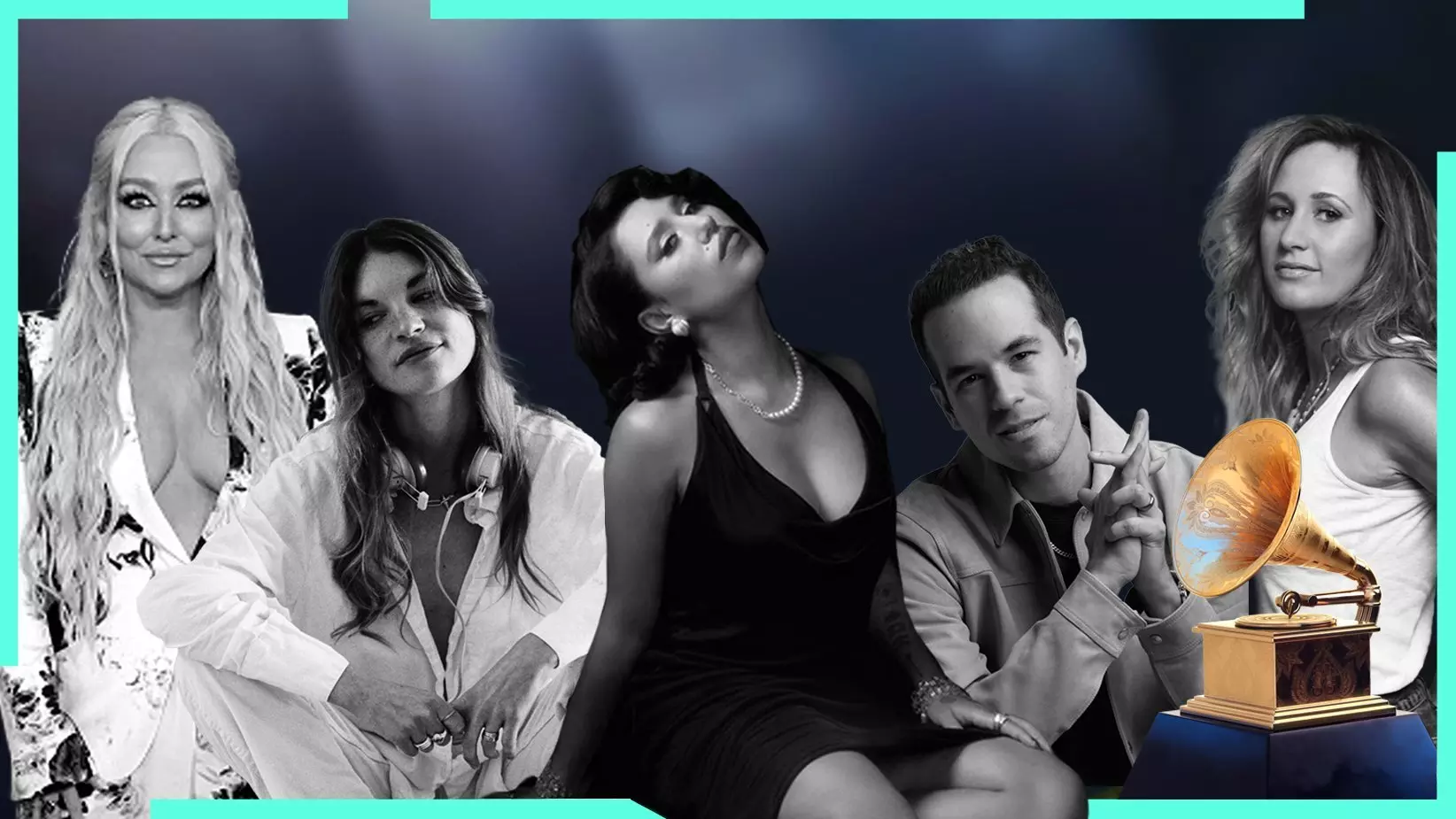
2025 GRAMMYs Nominations: Songwriter Of The Year Nominees
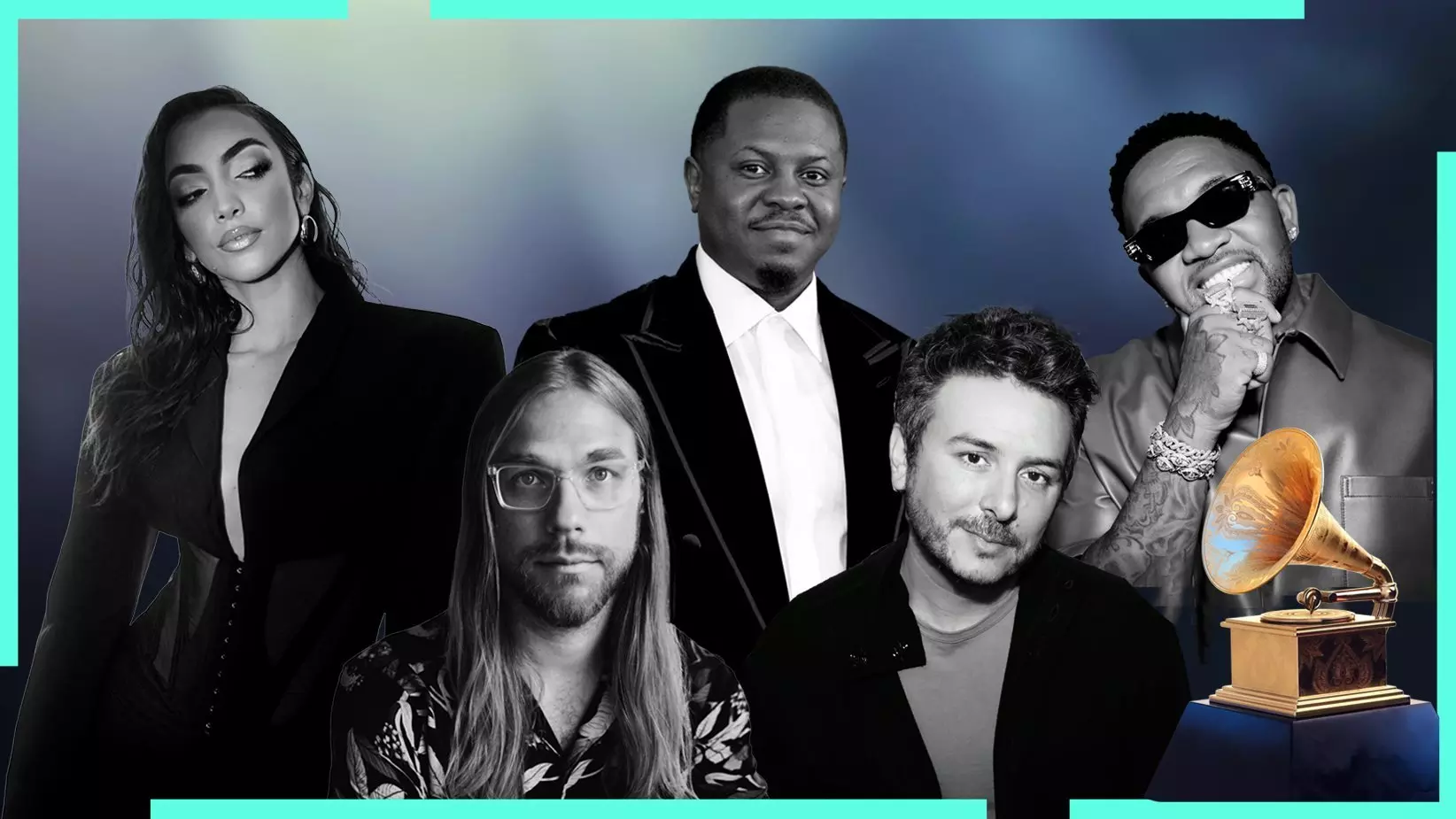
2025 GRAMMYs Nominations: Producer Of The Year Nominees

Watch The 2025 GRAMMY Nominations Wrap-Up Show
